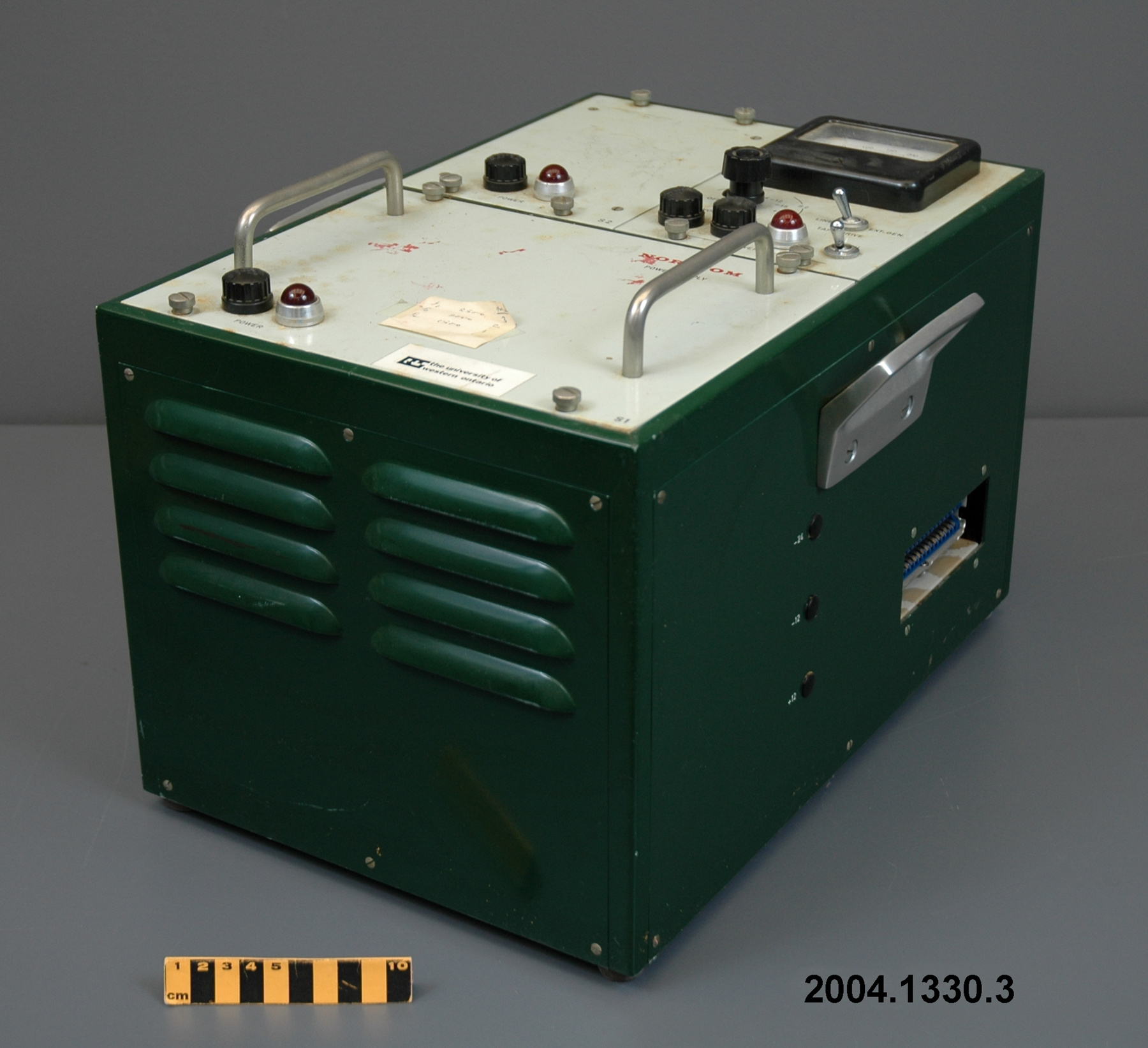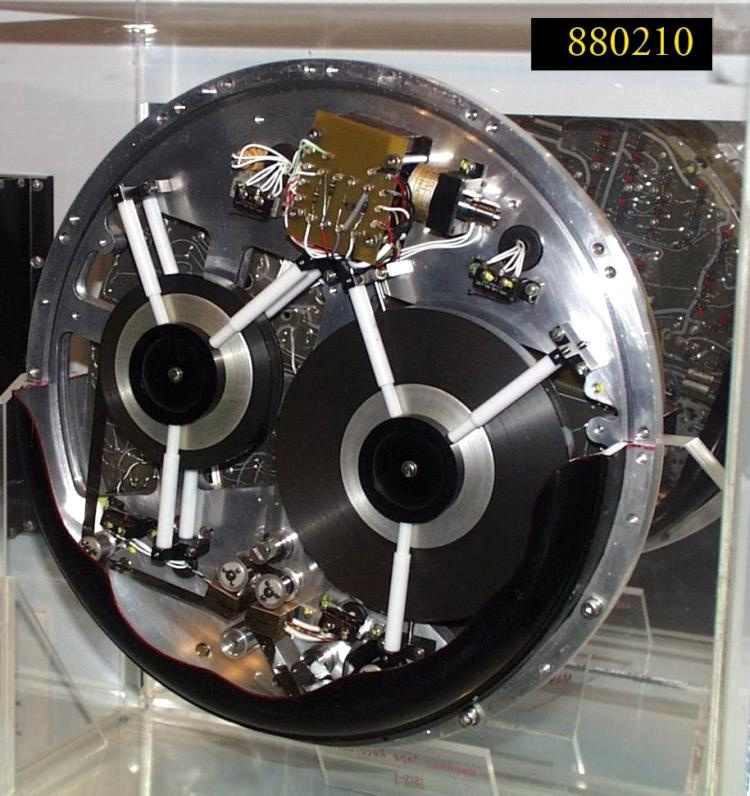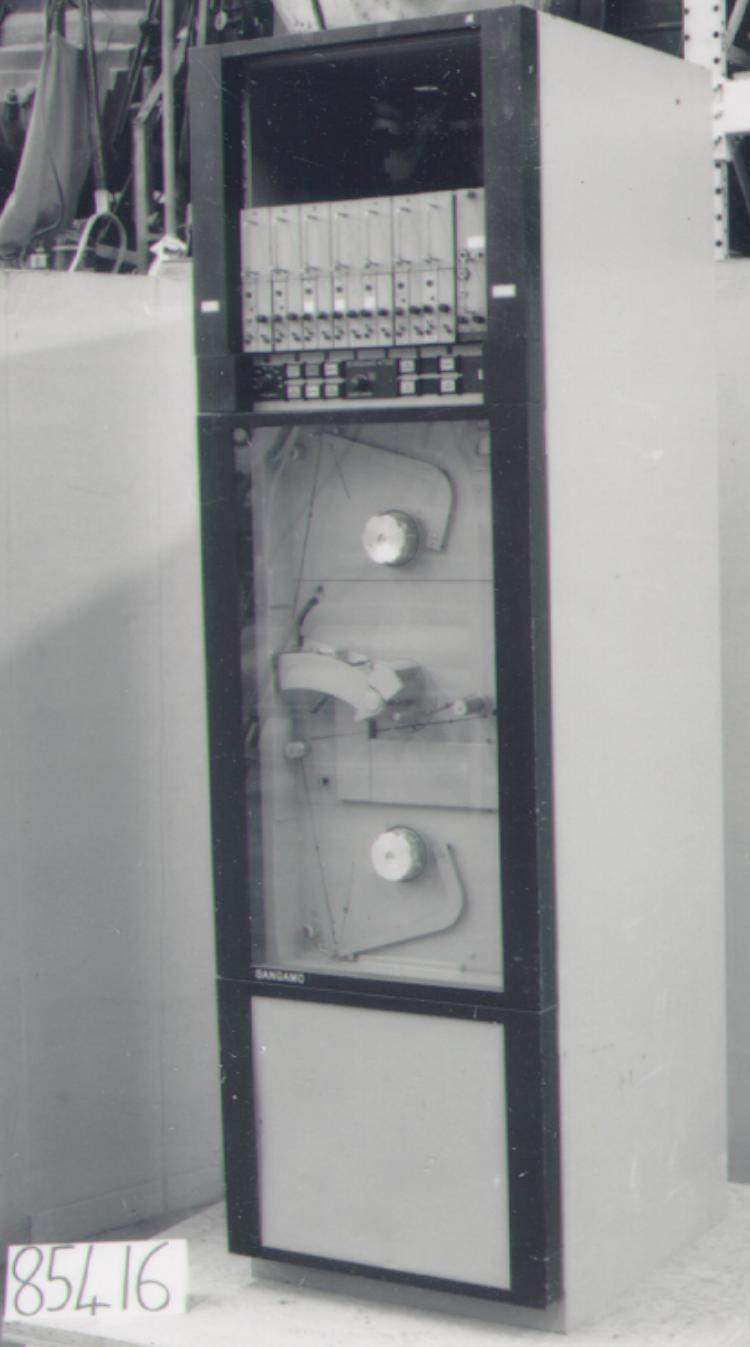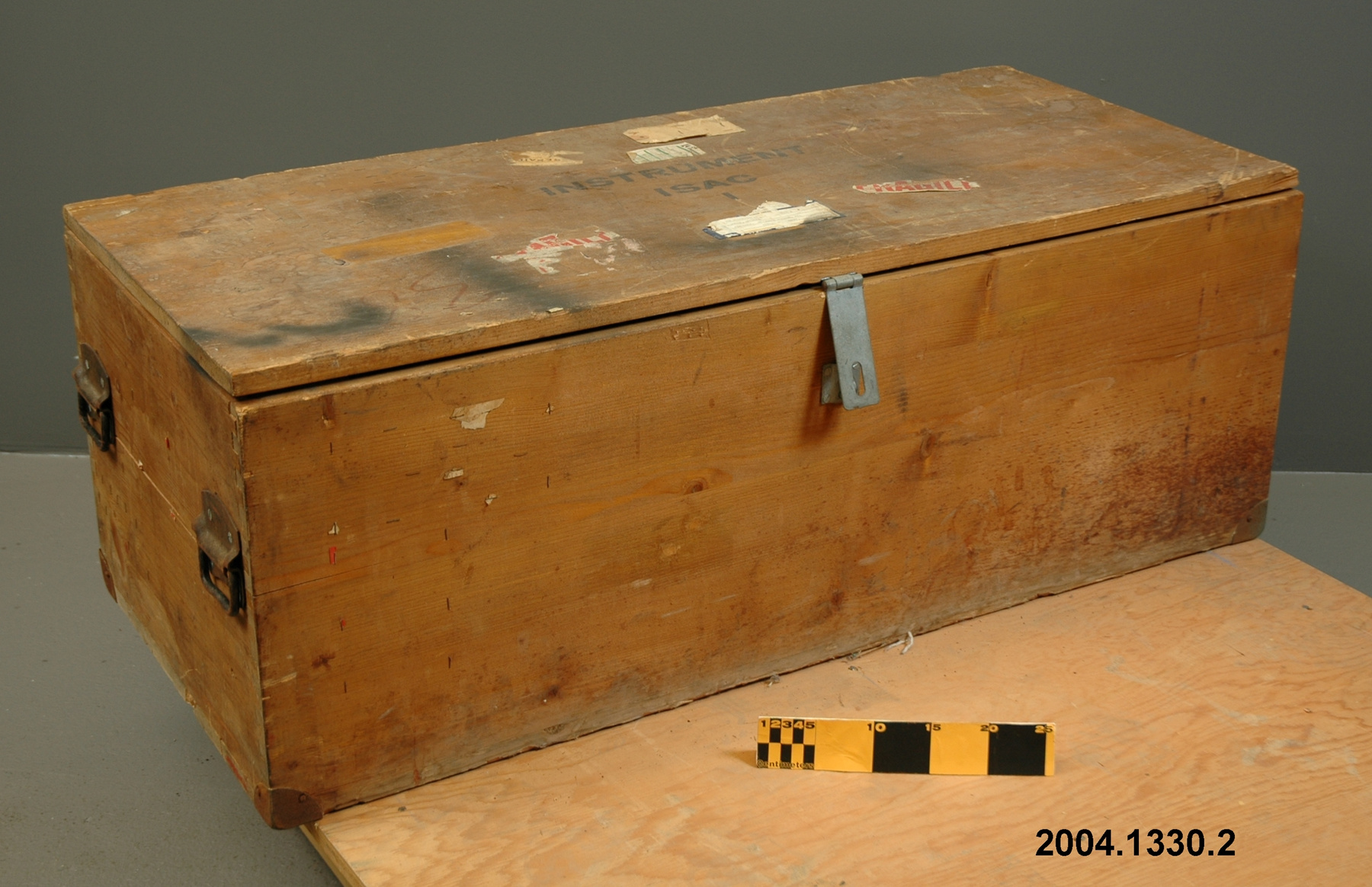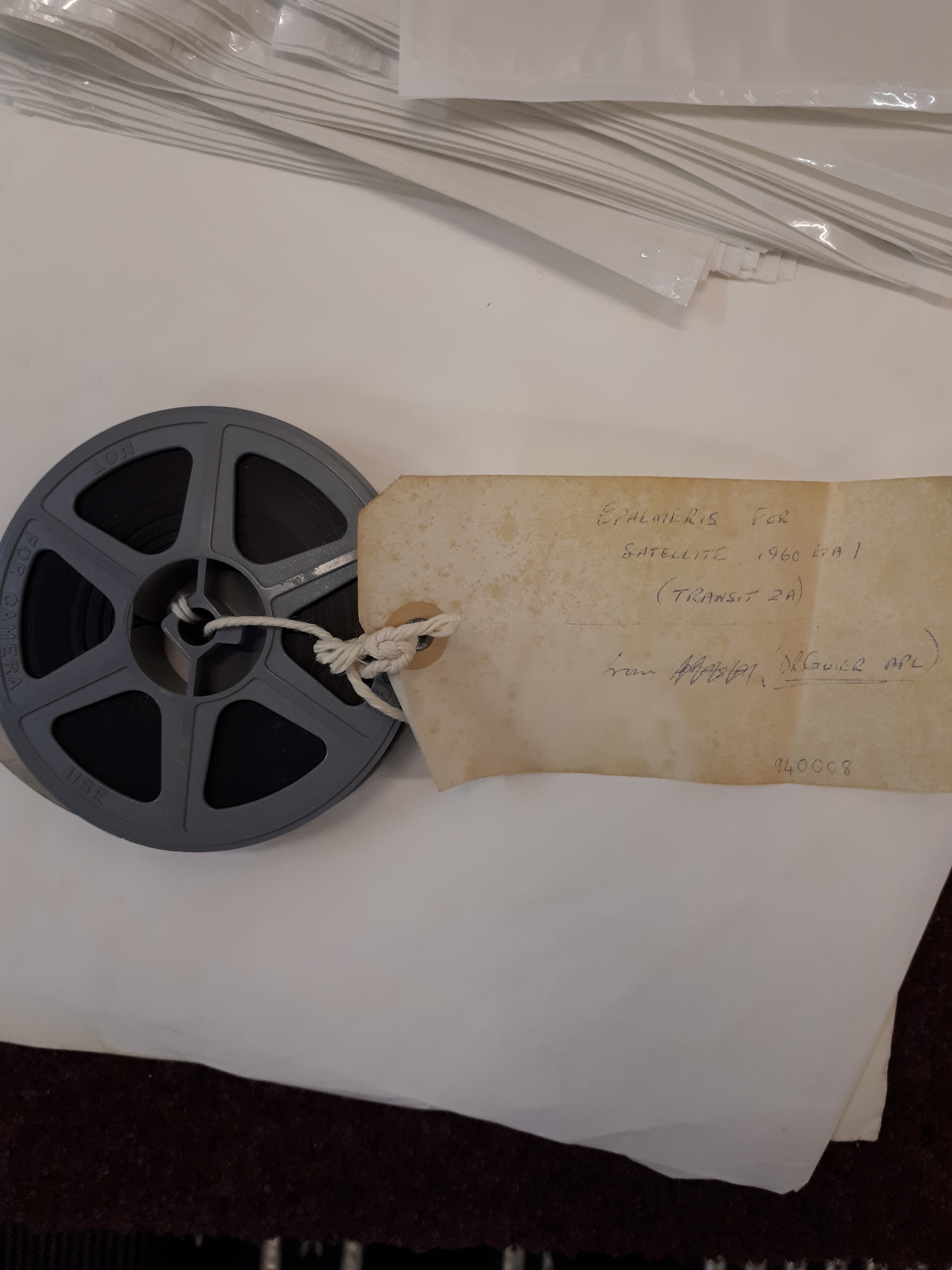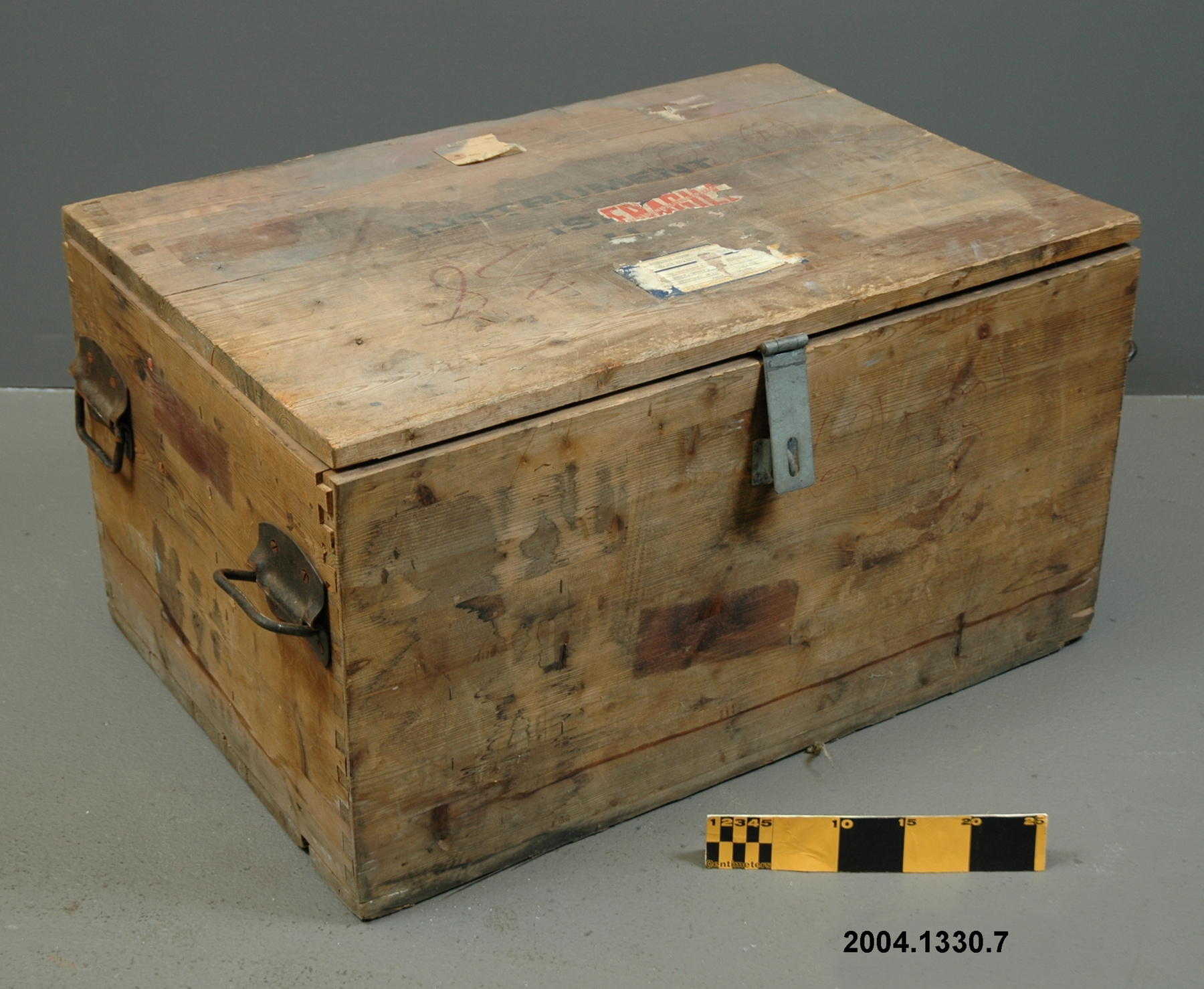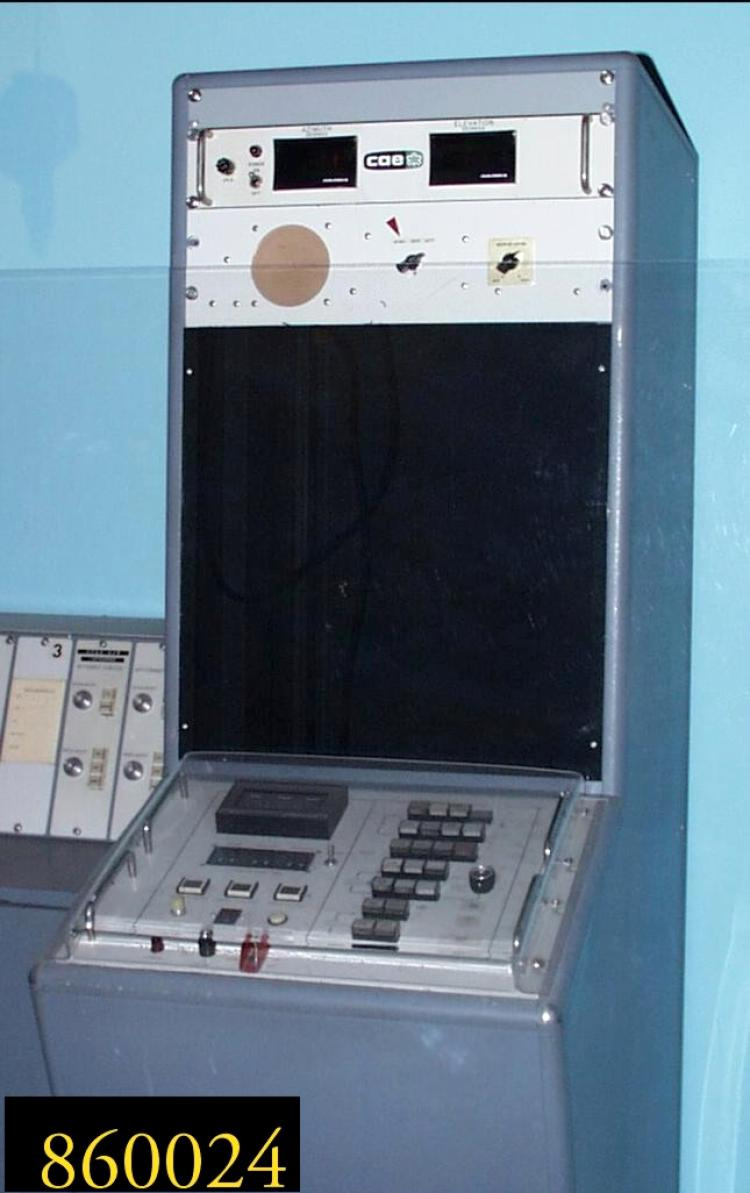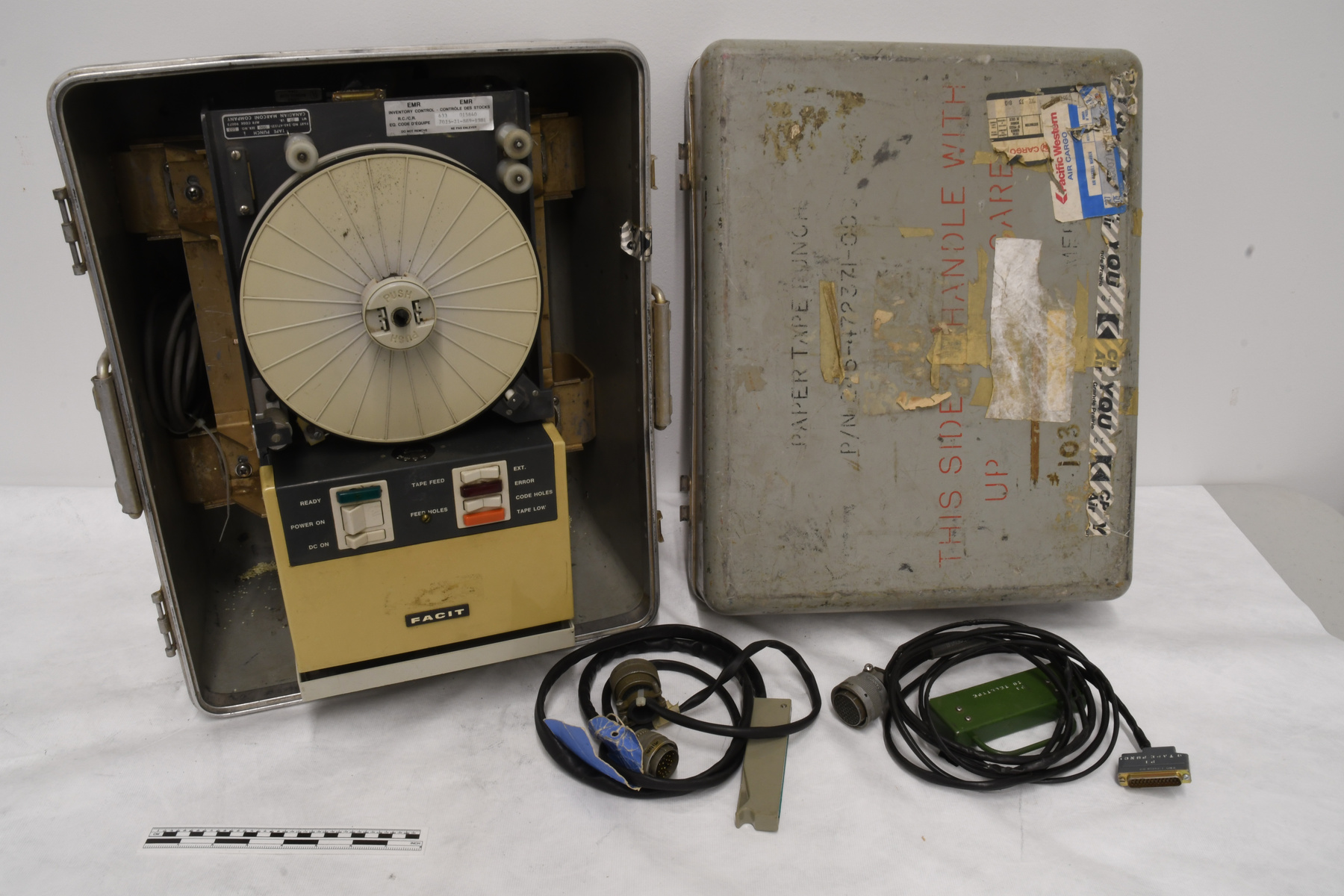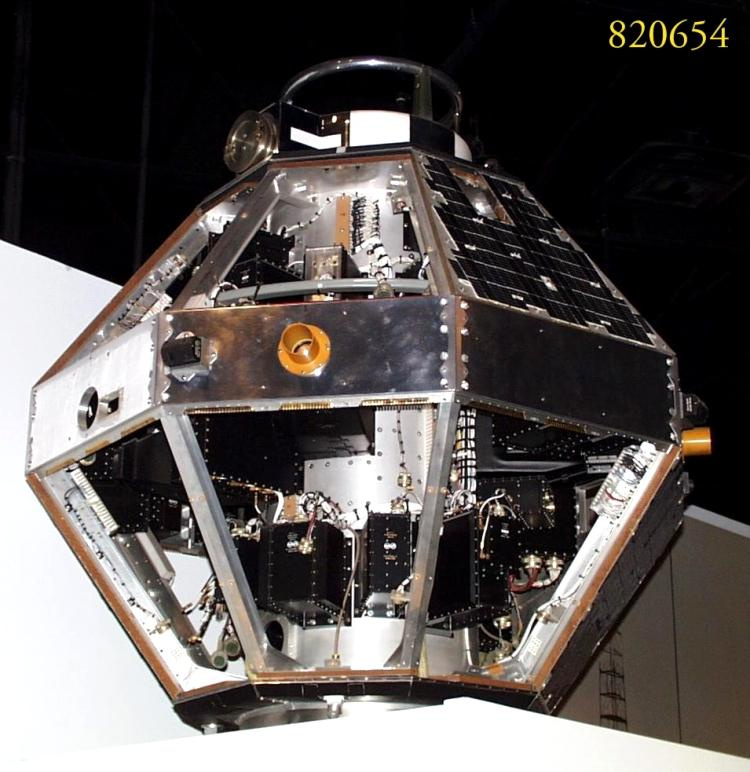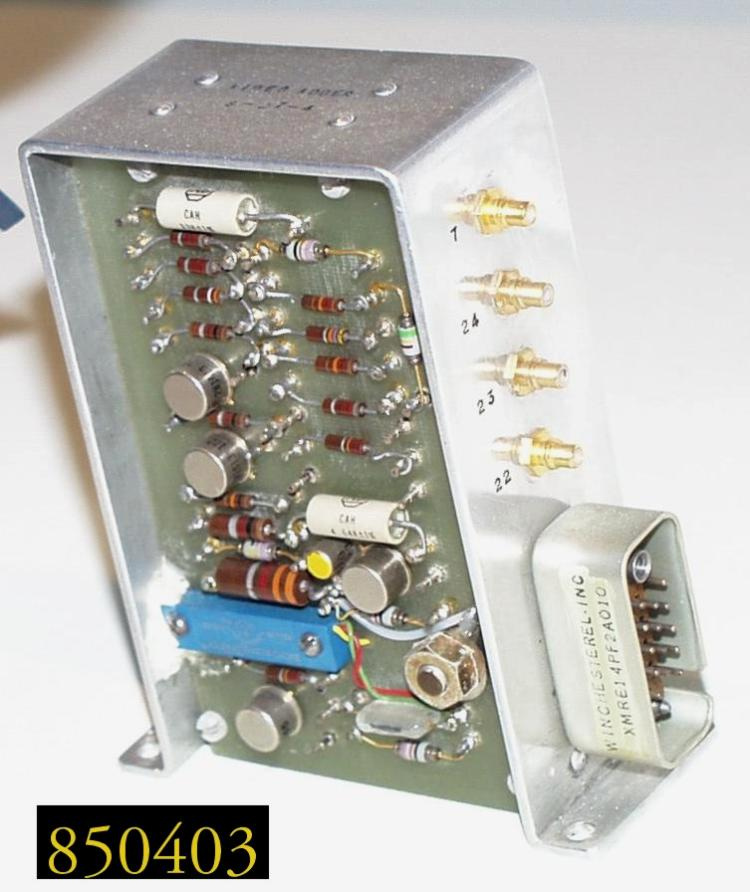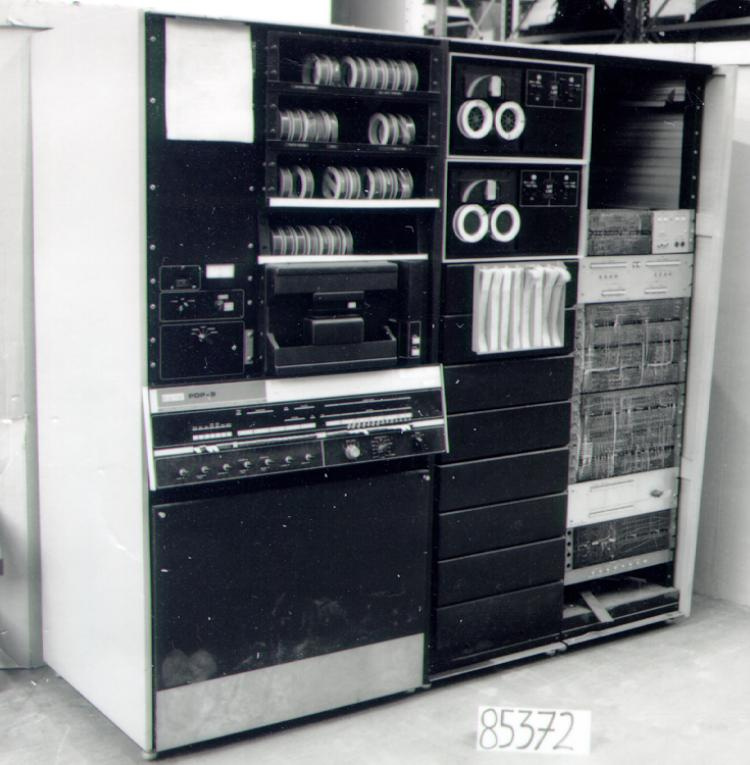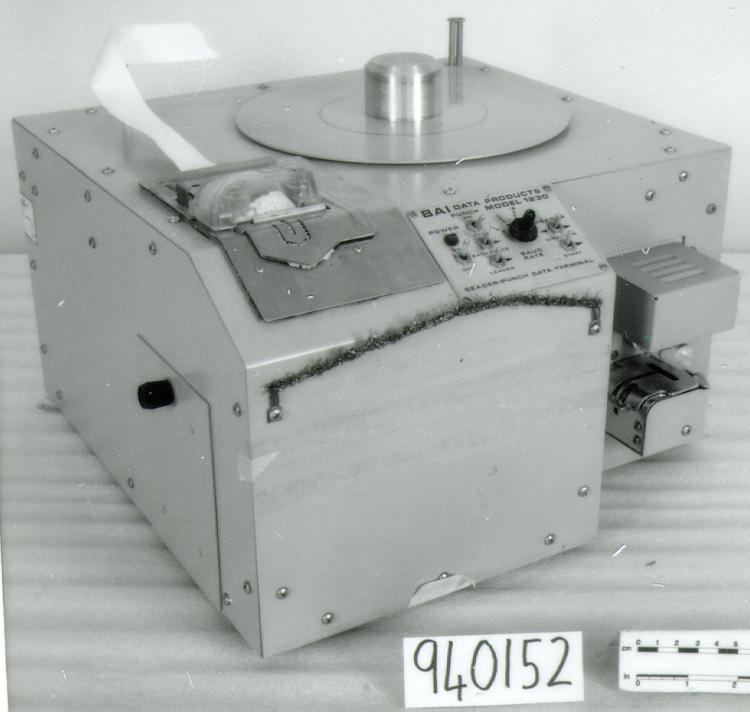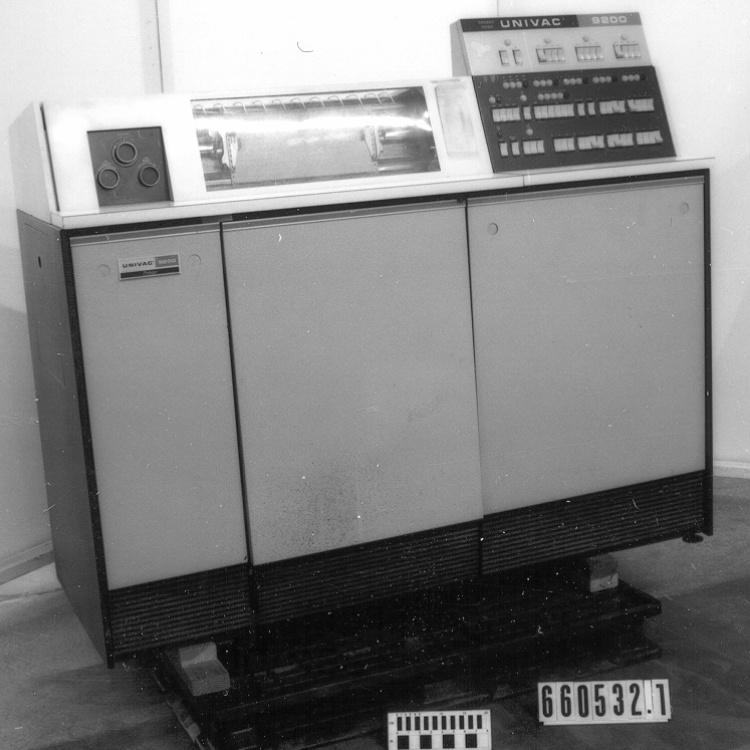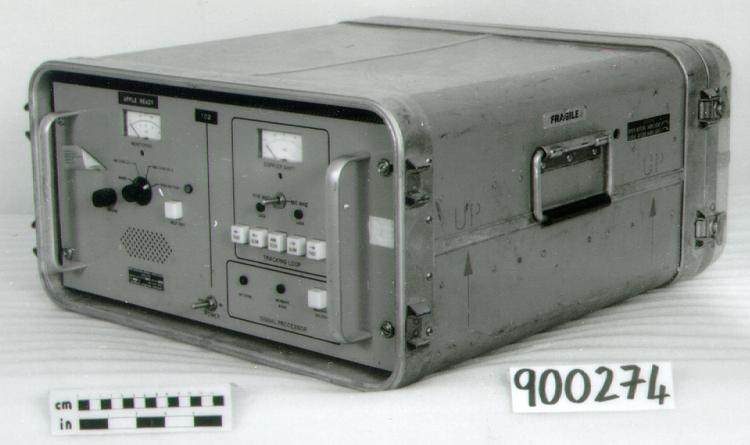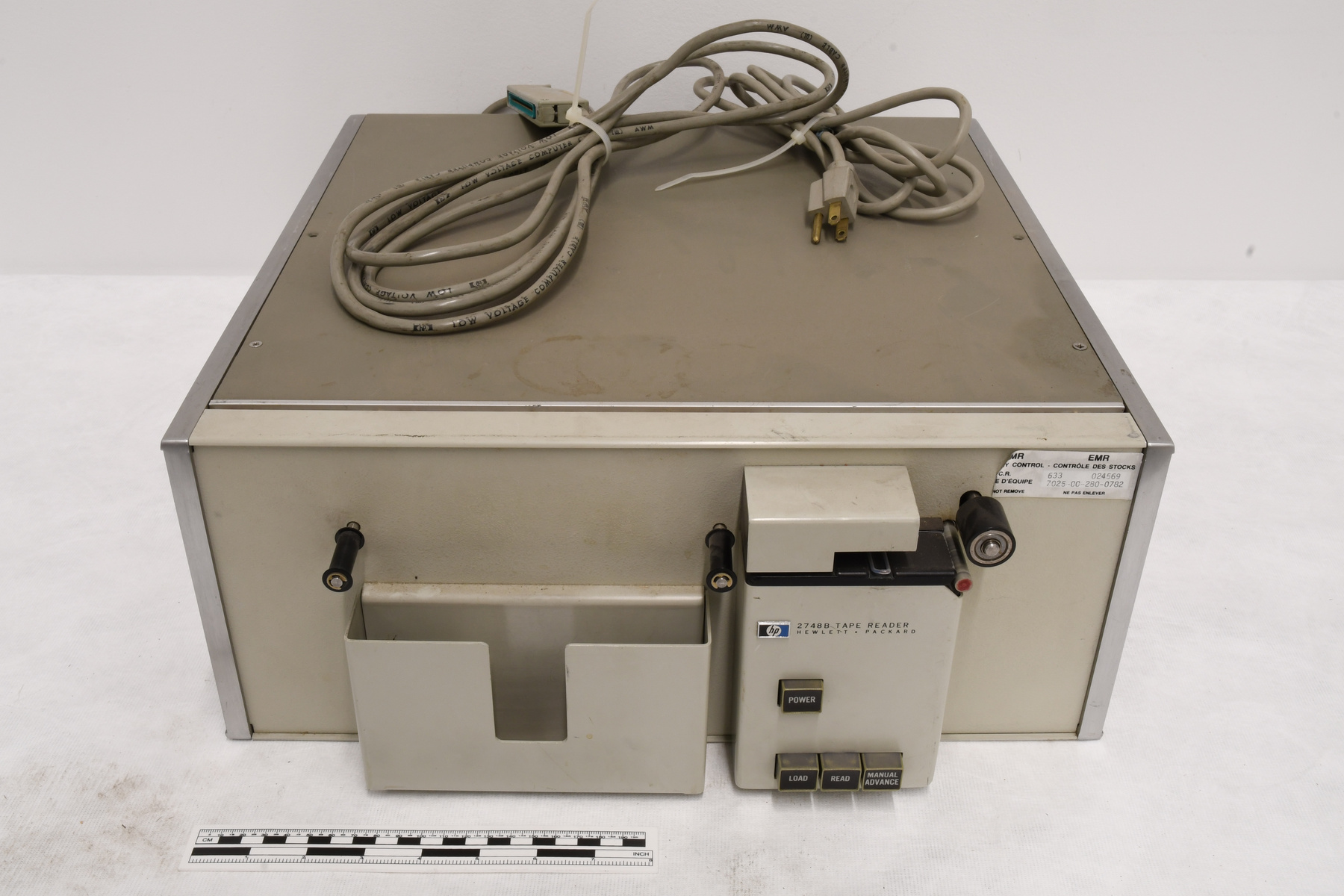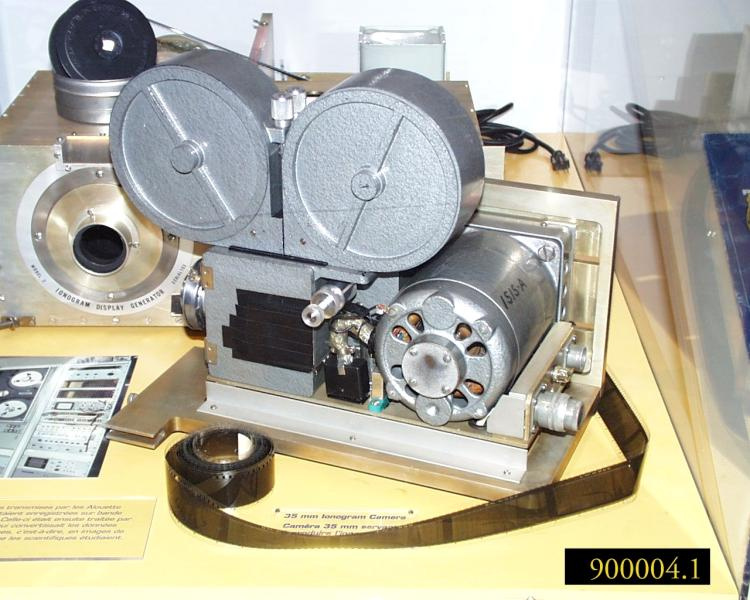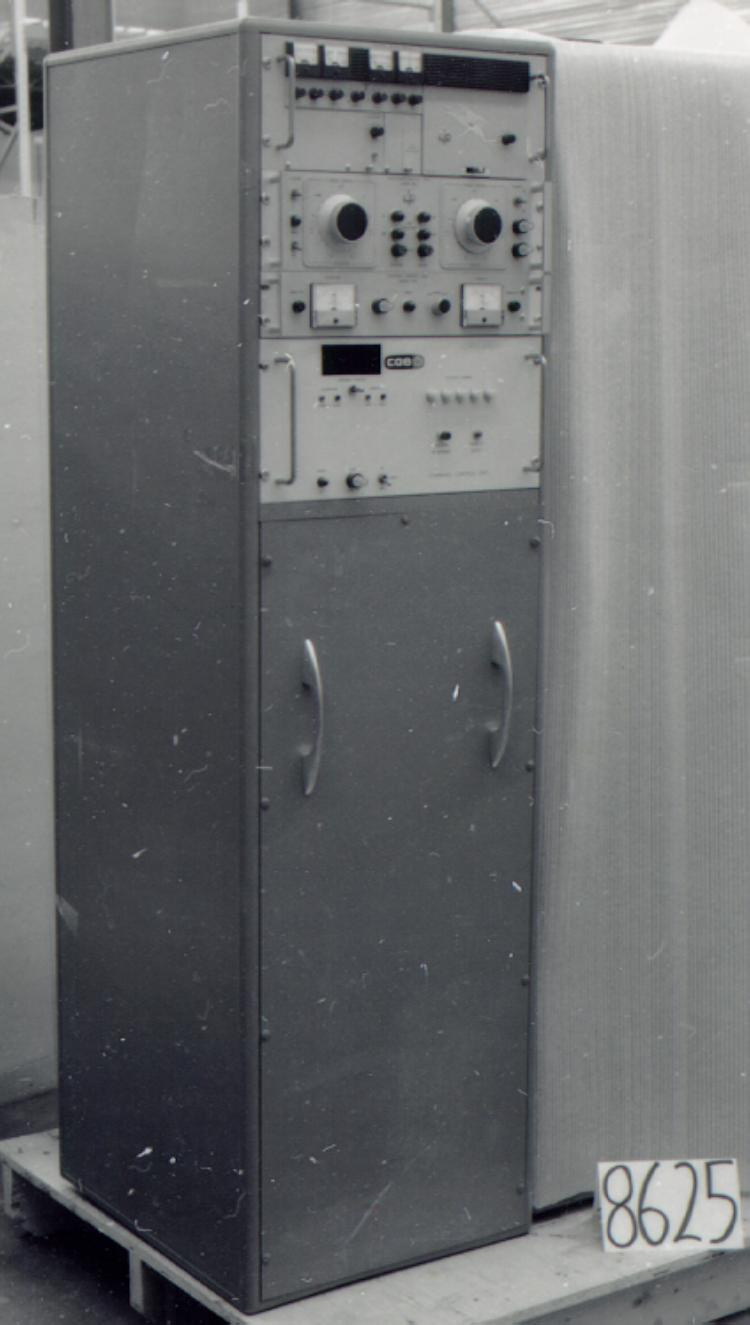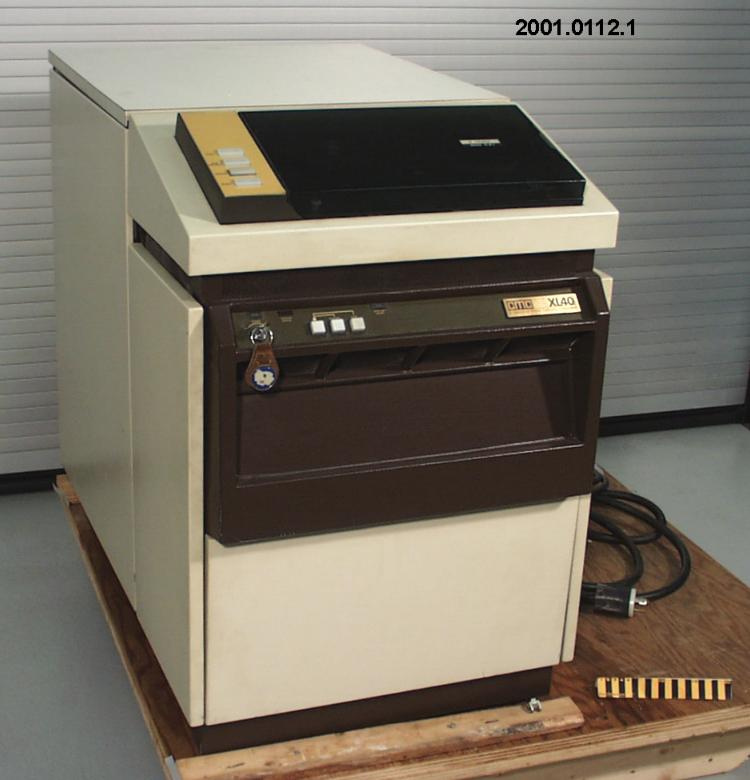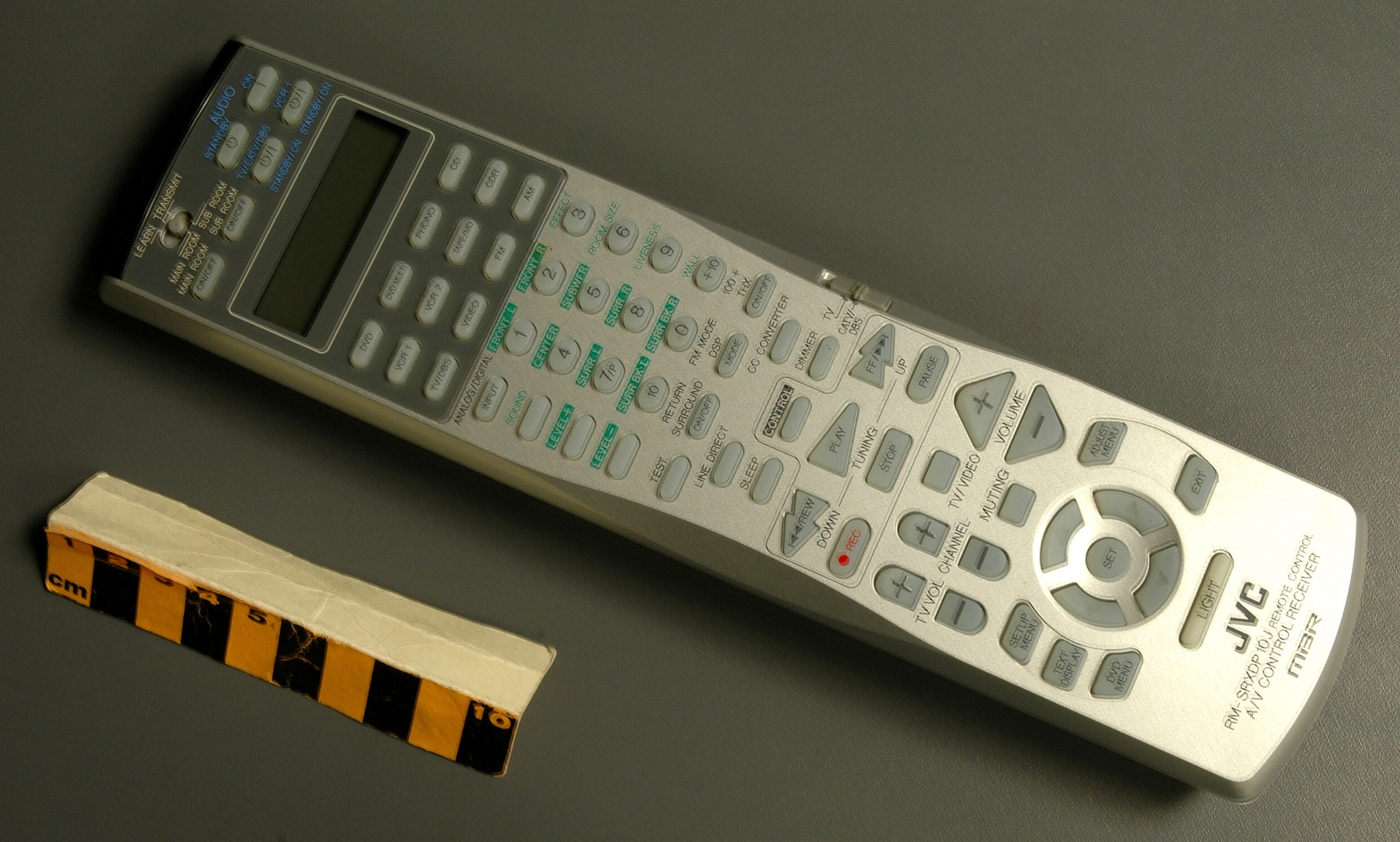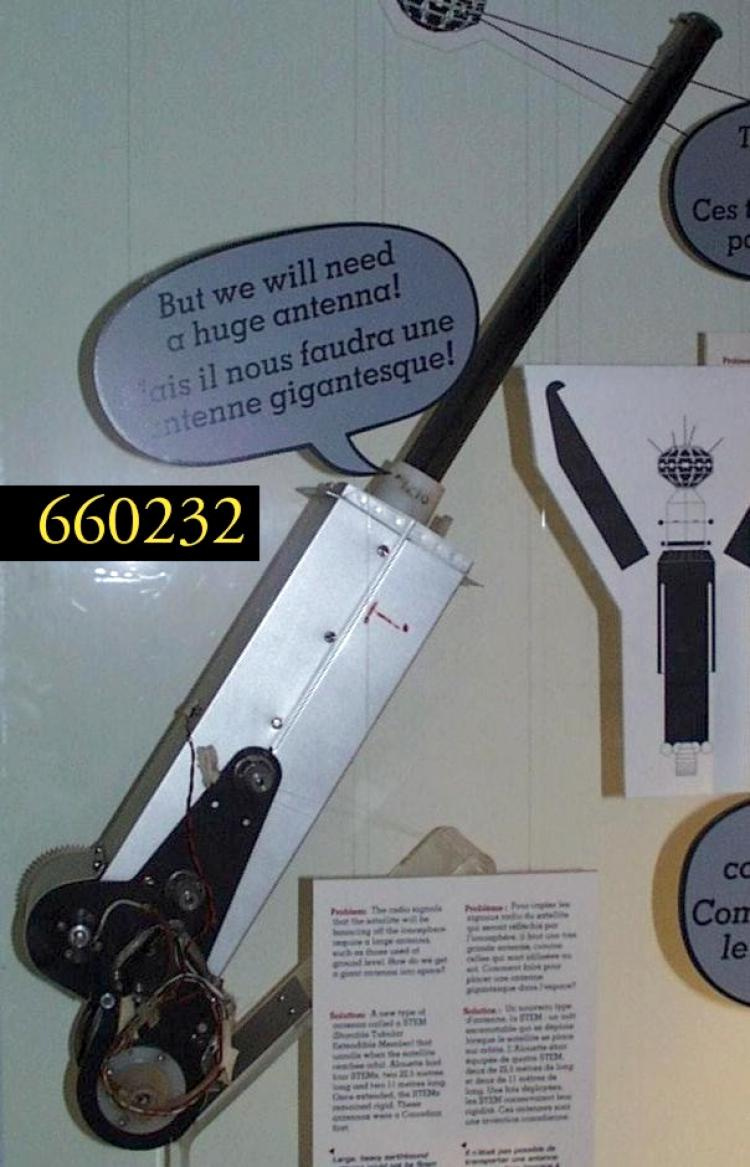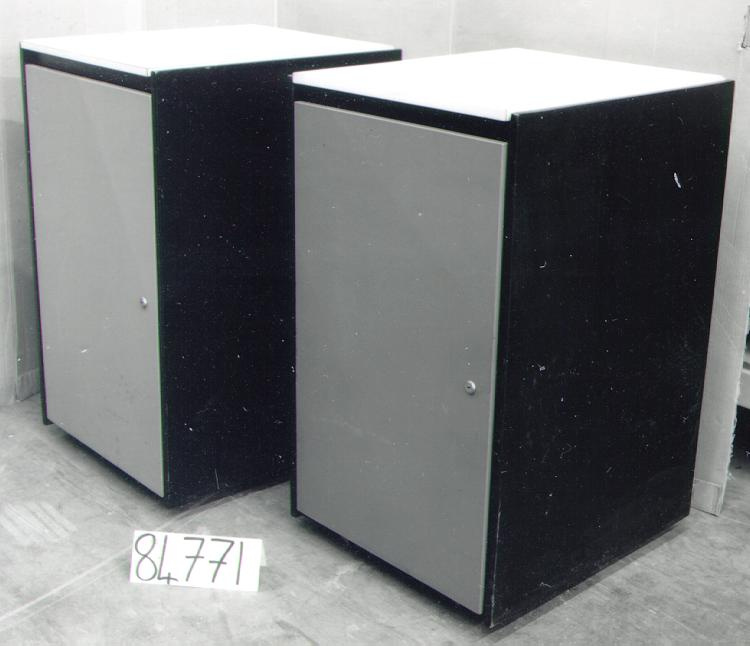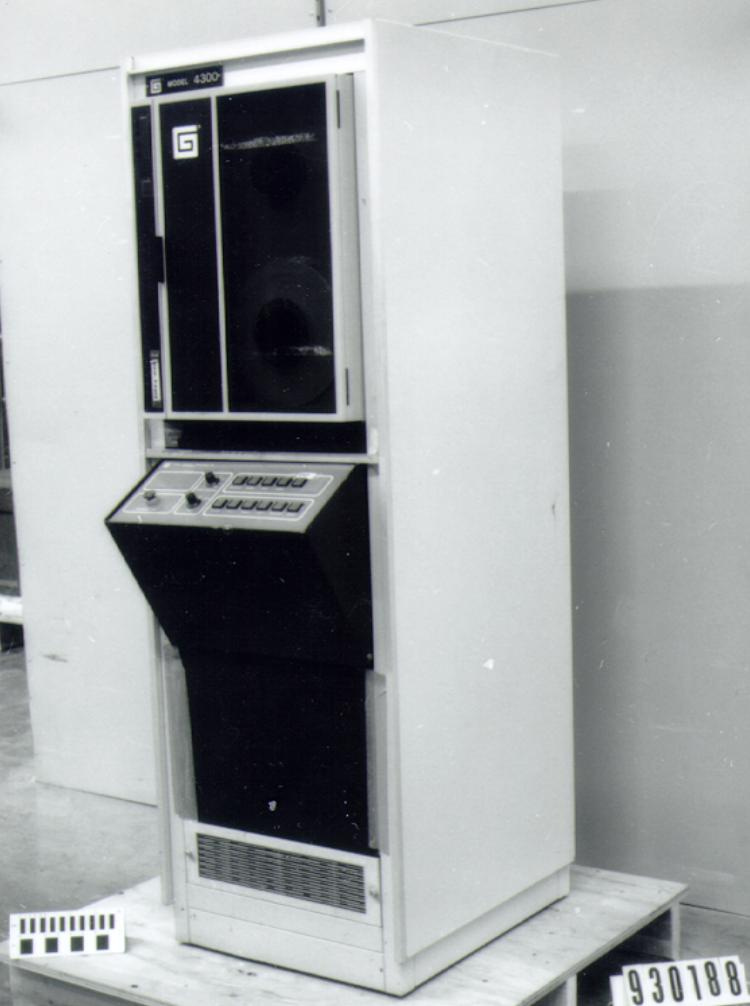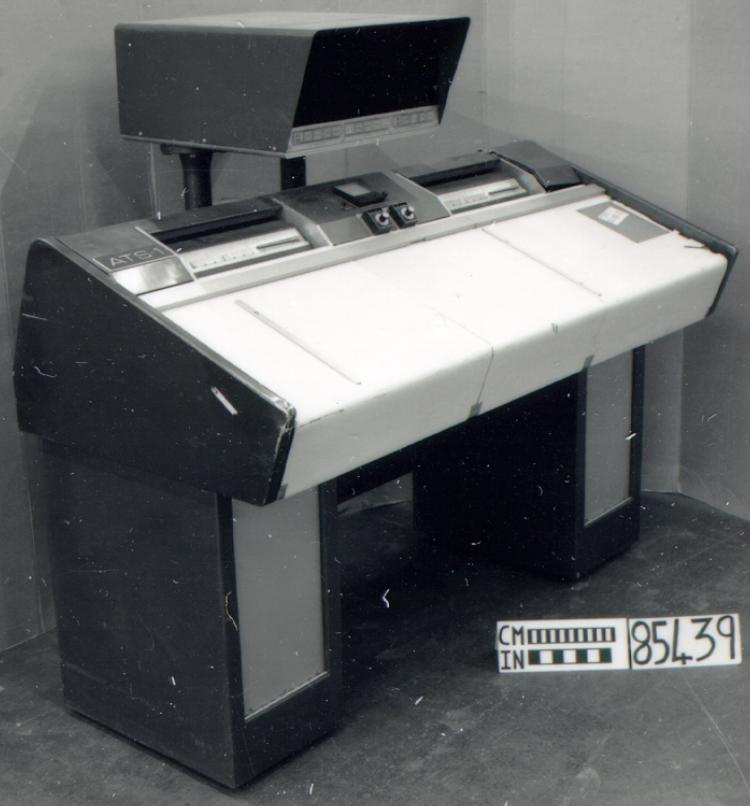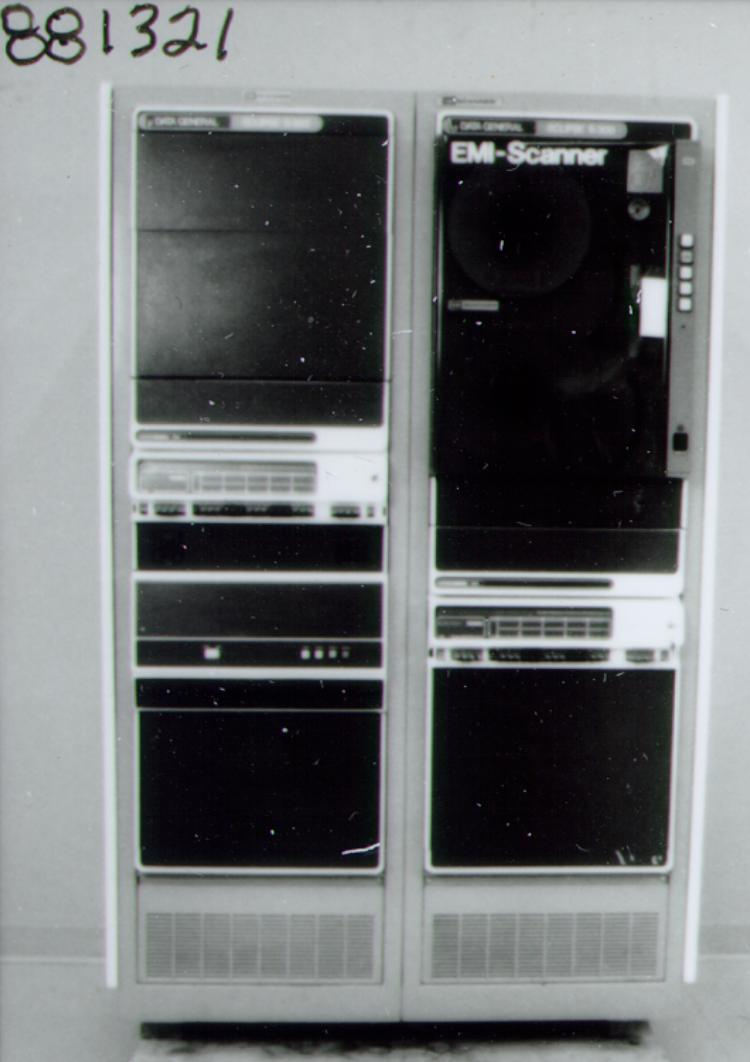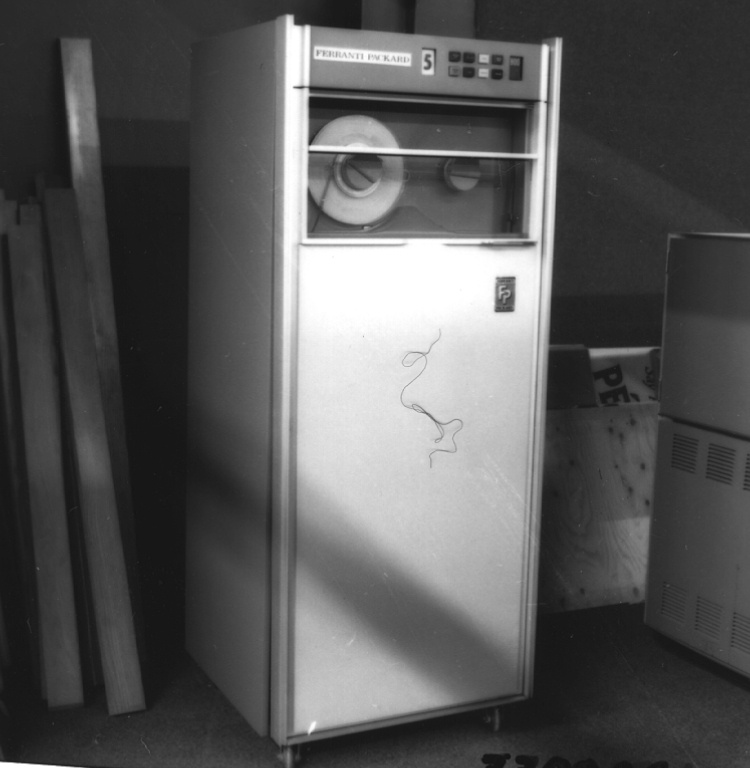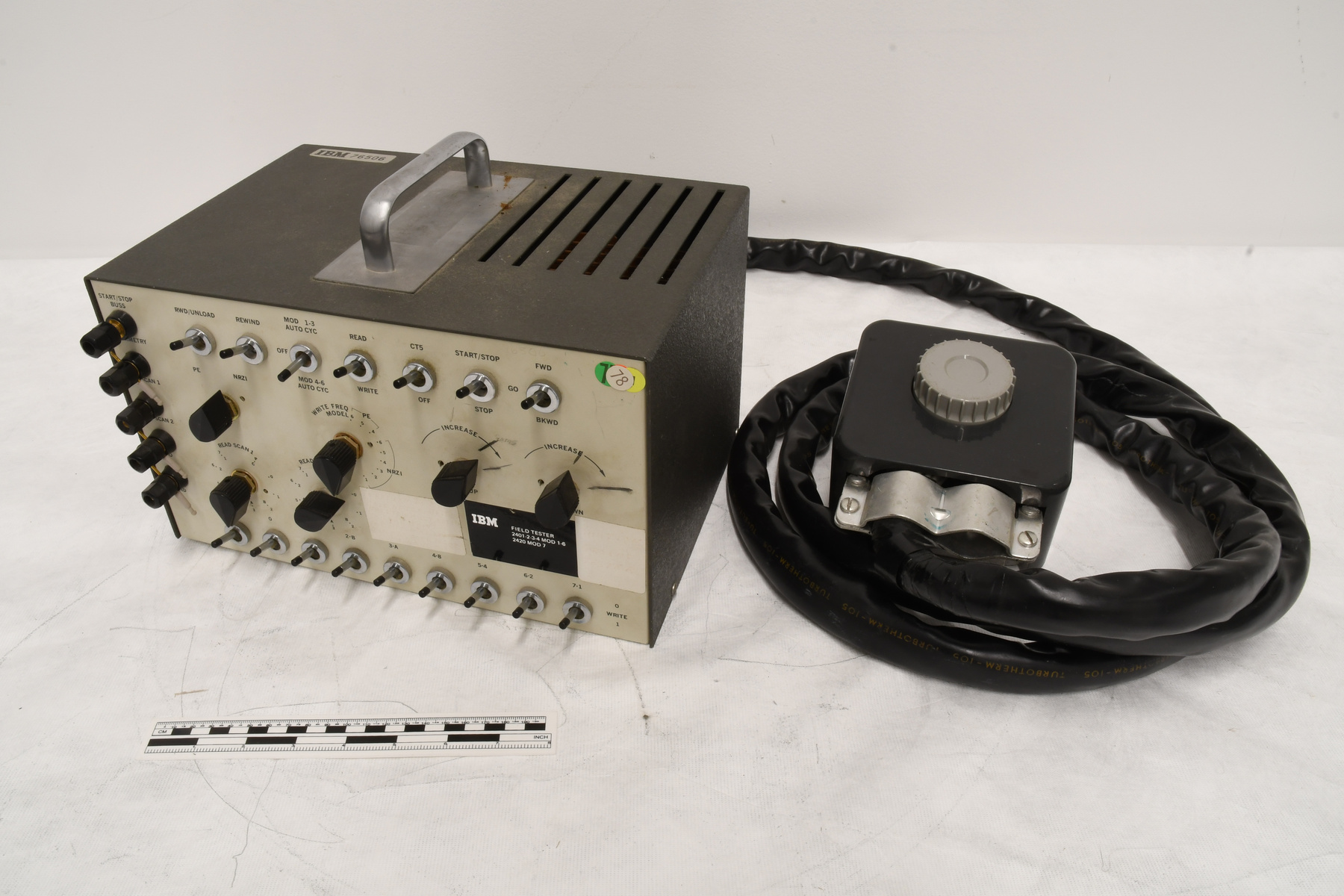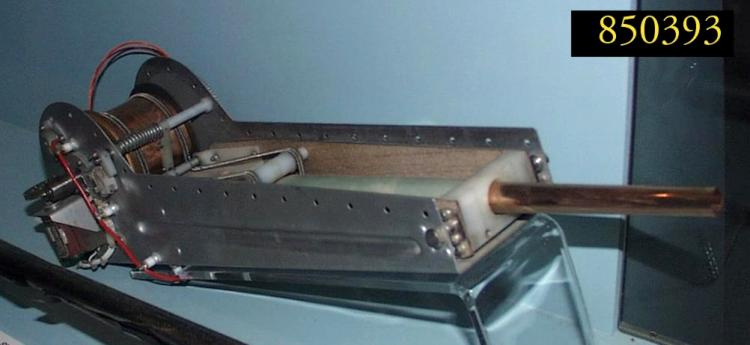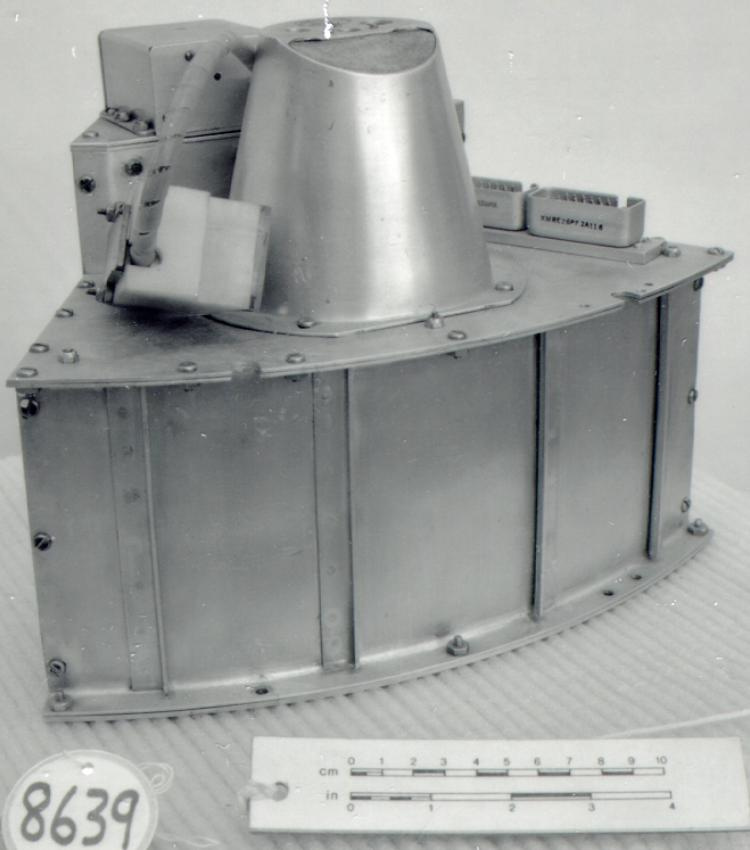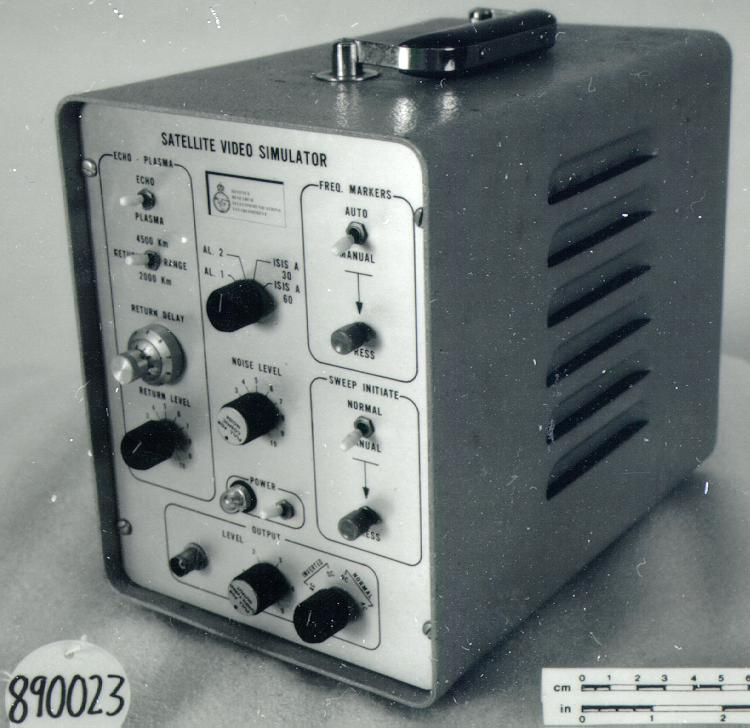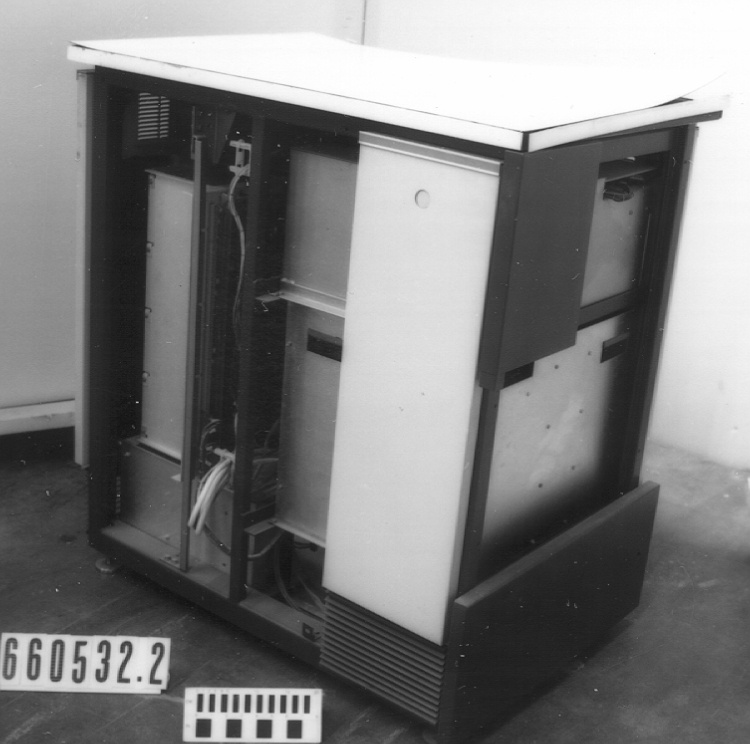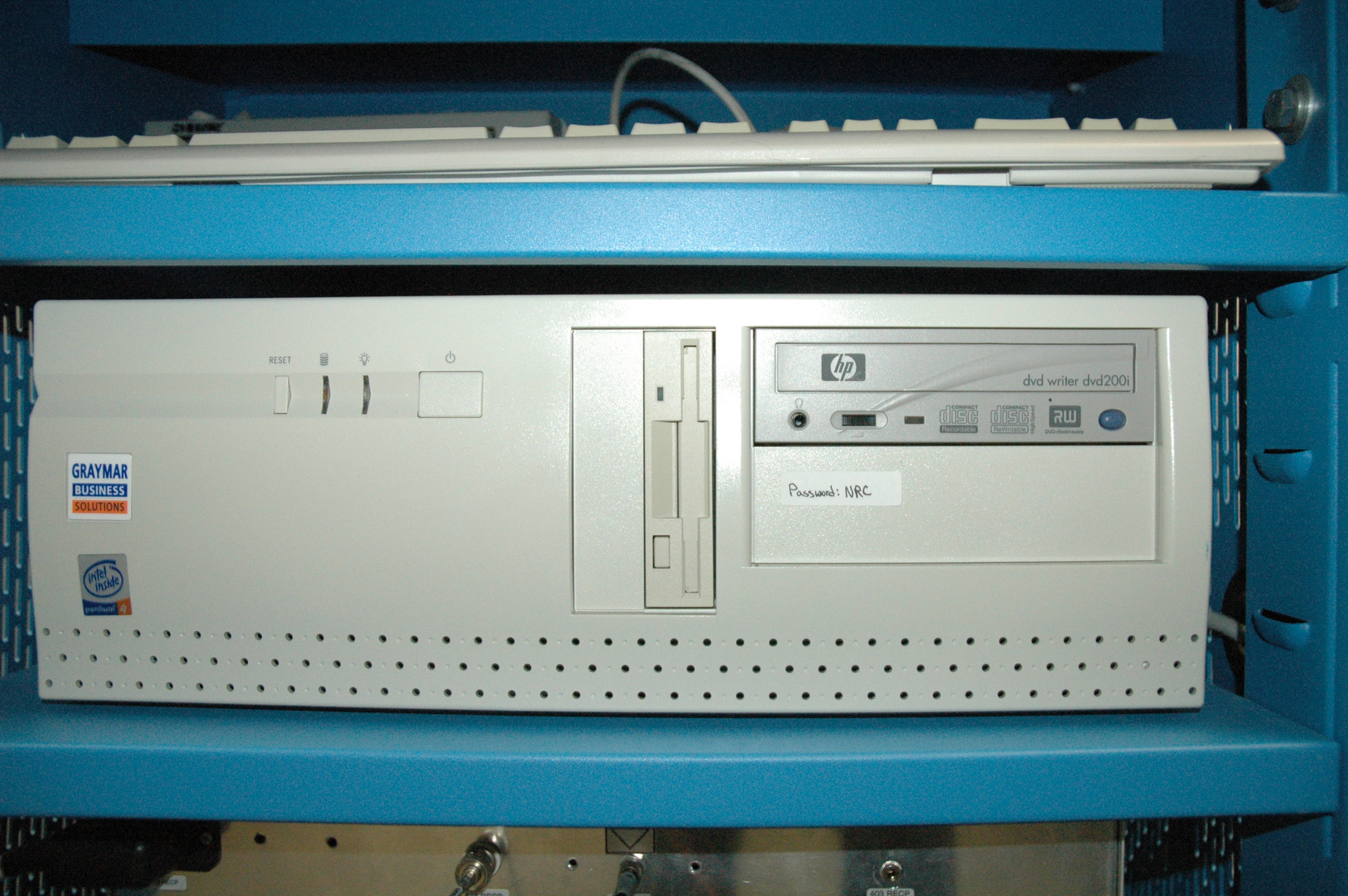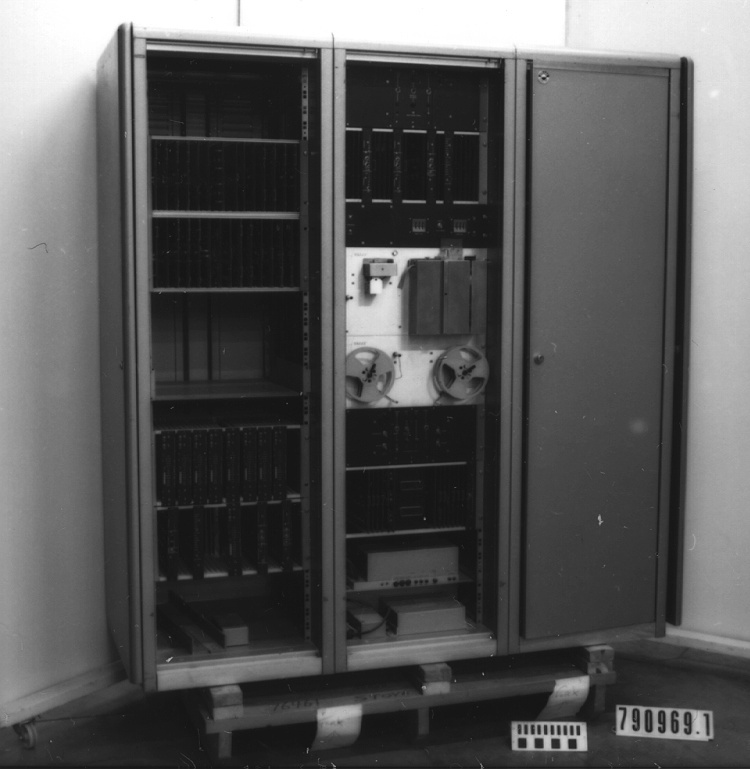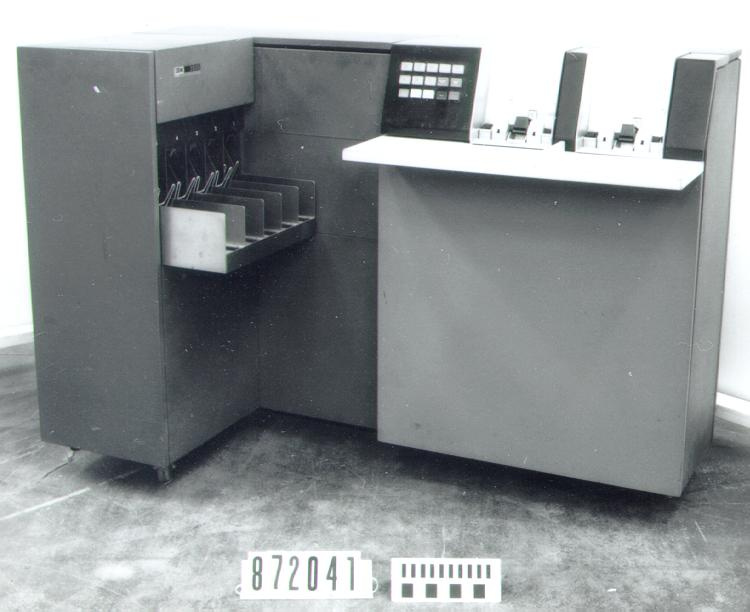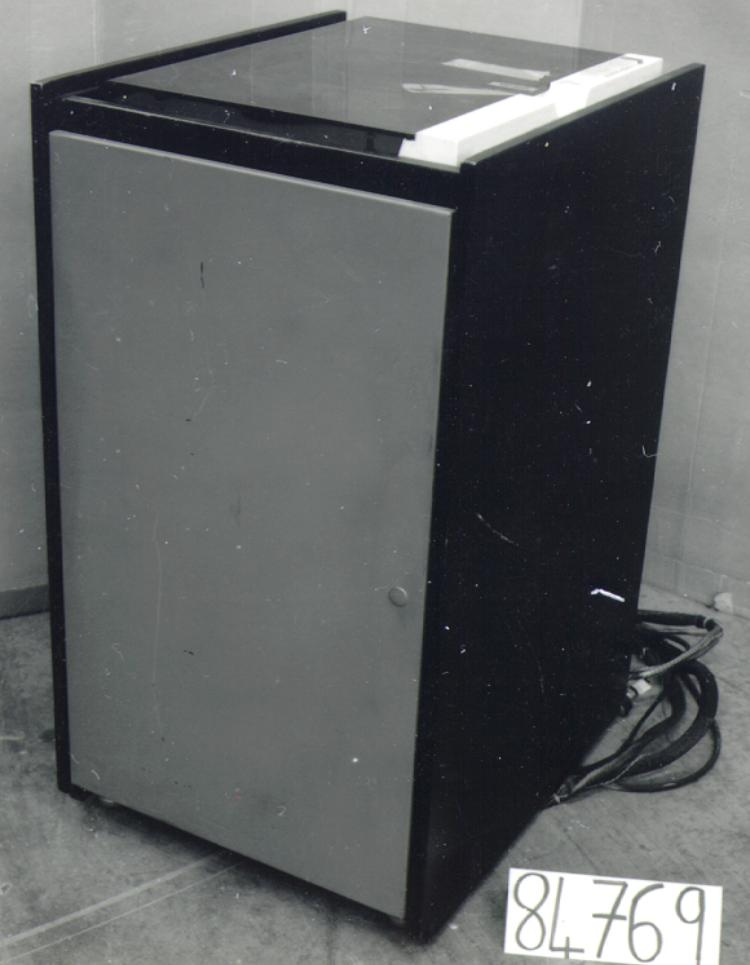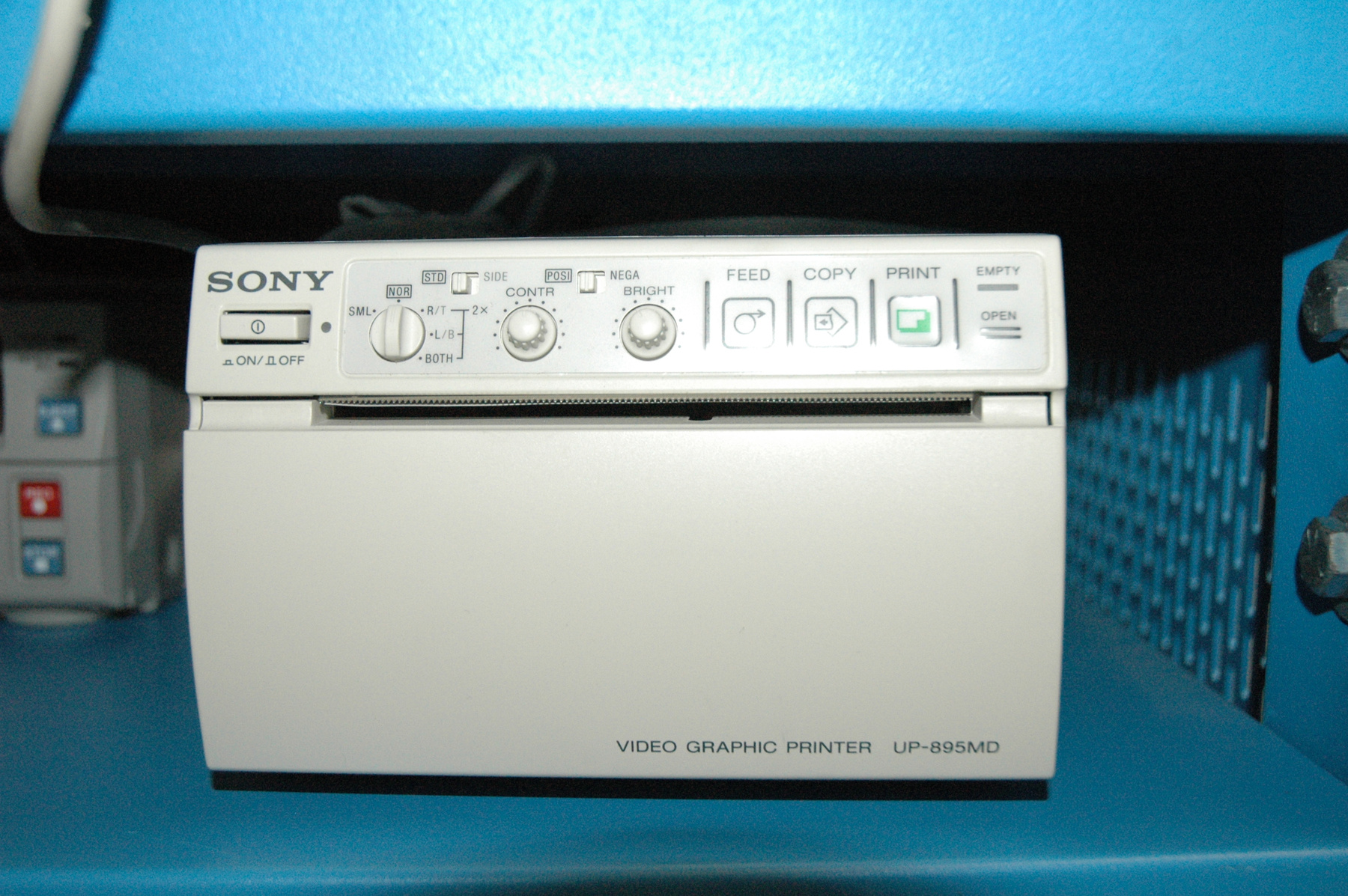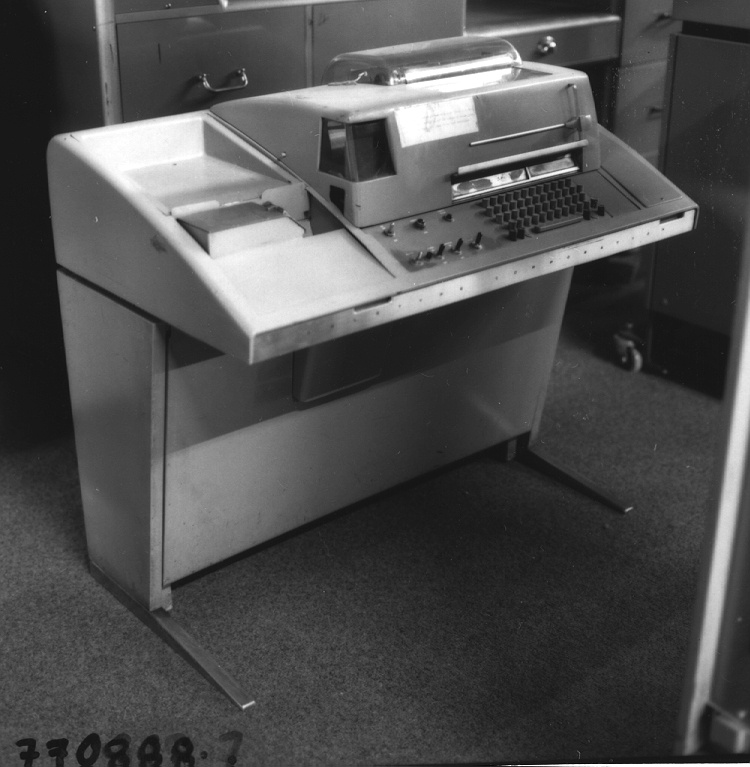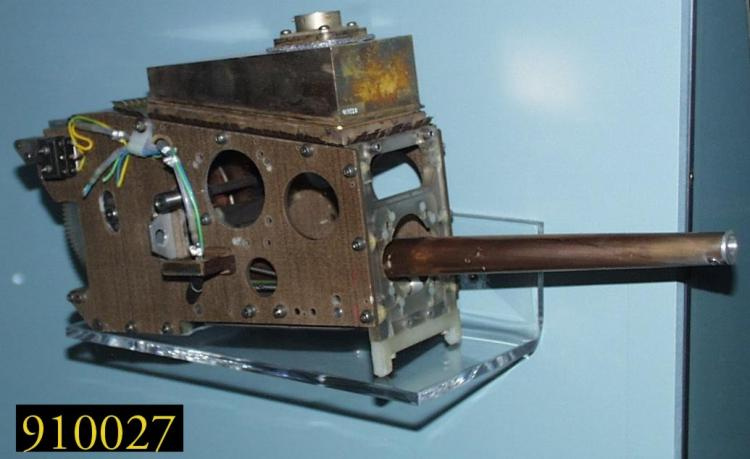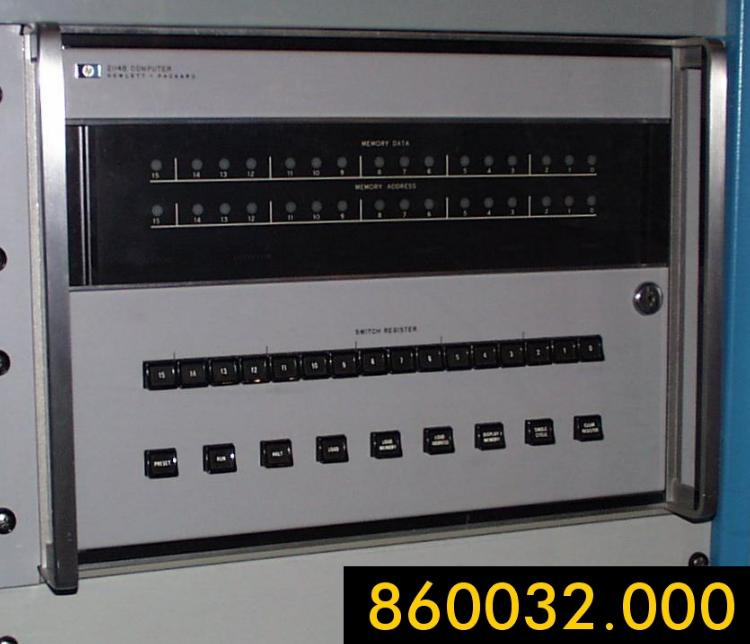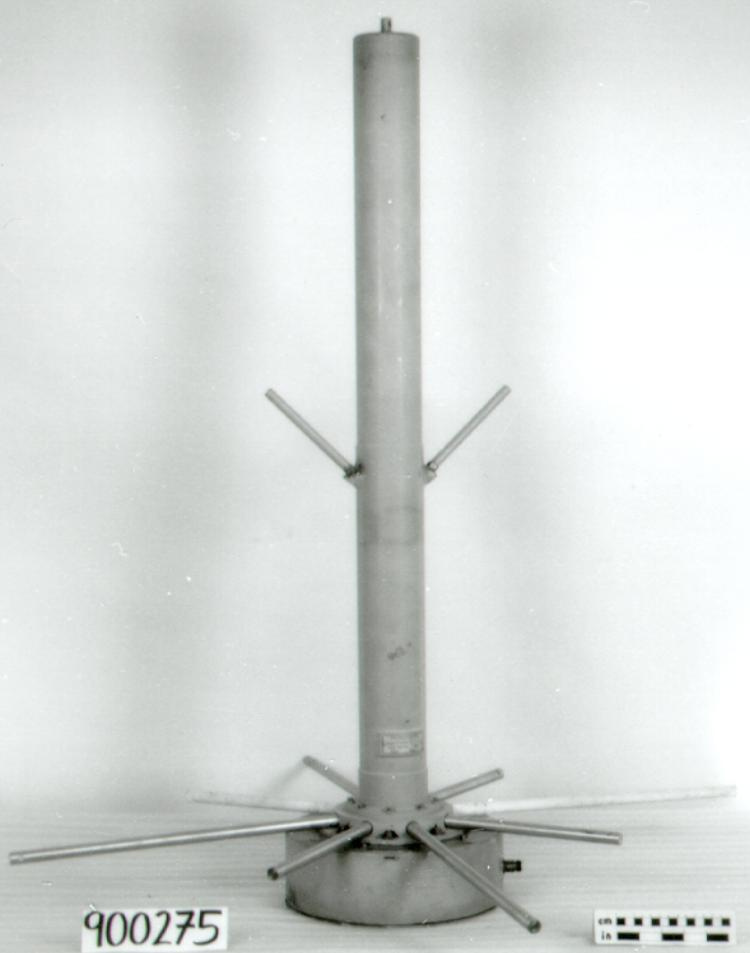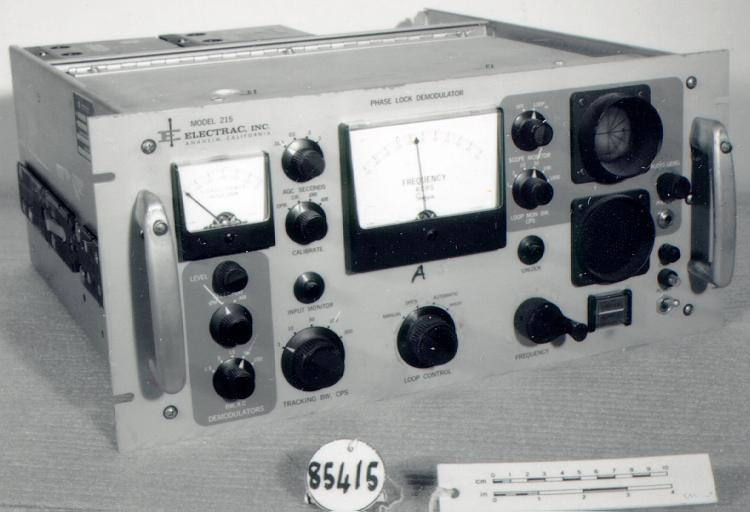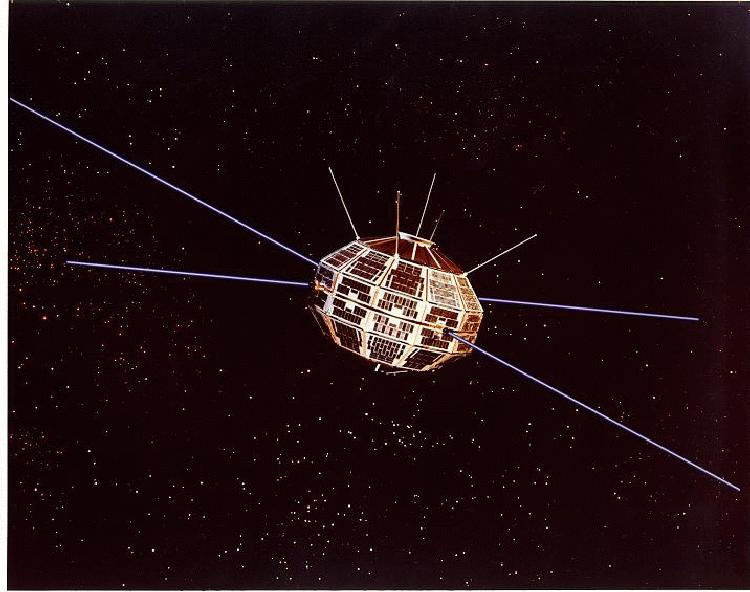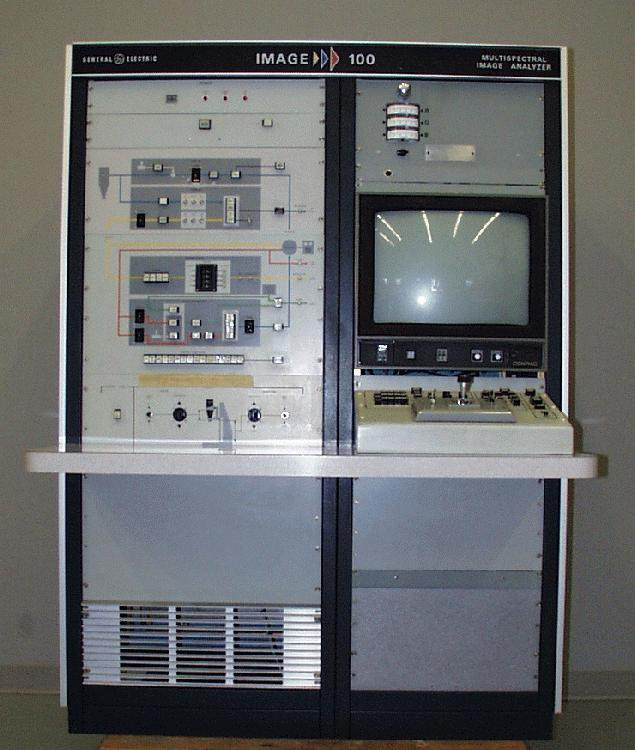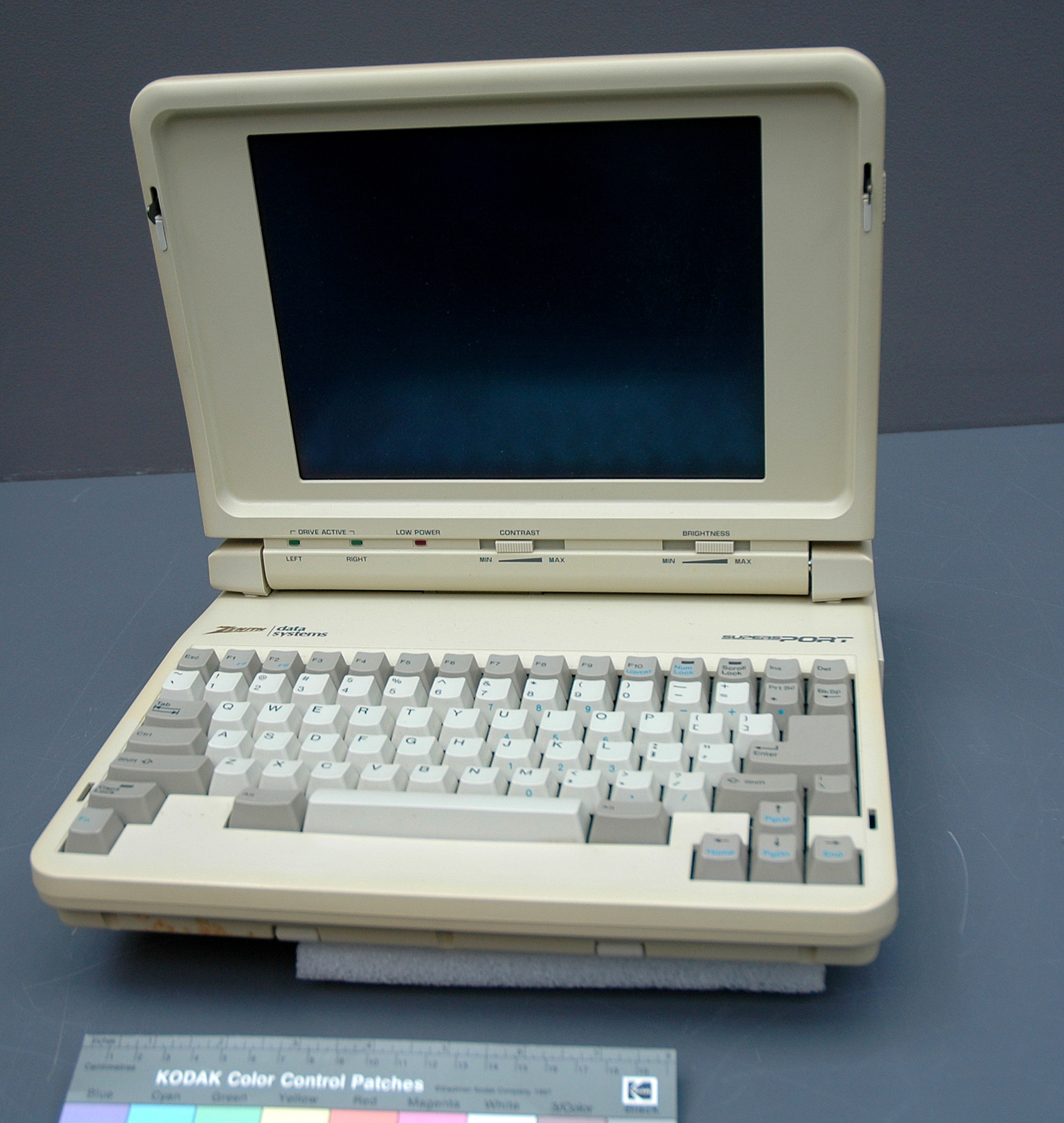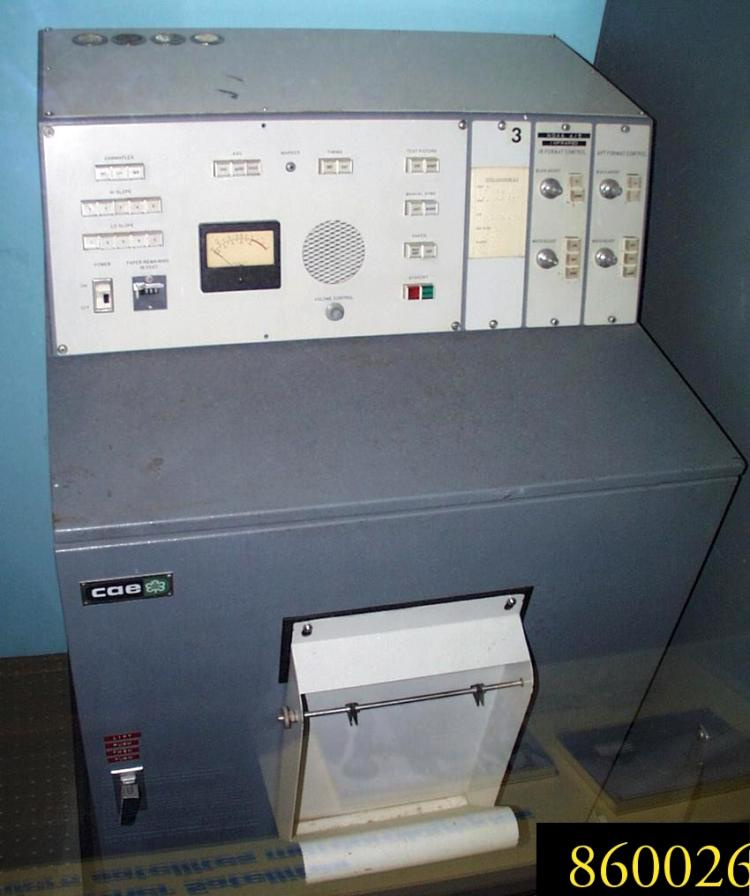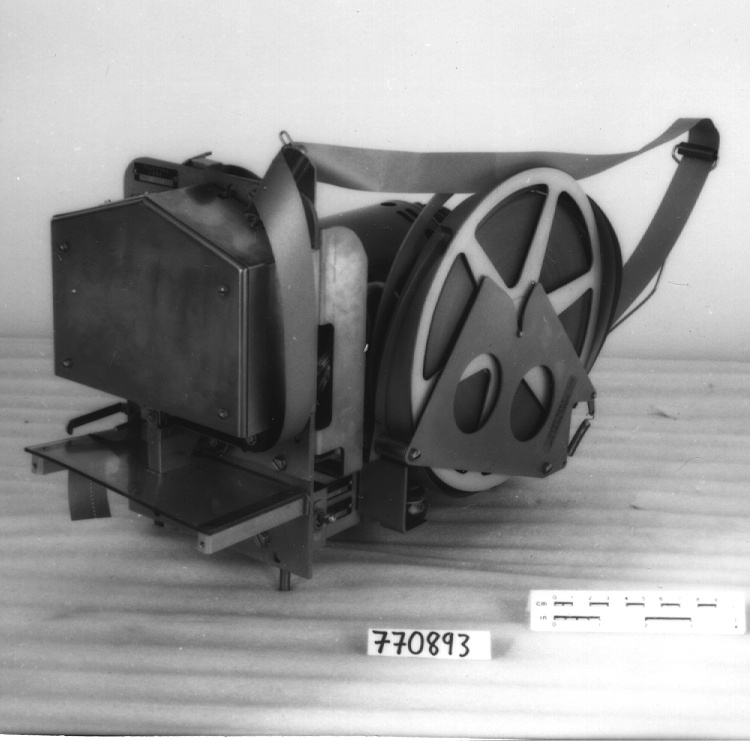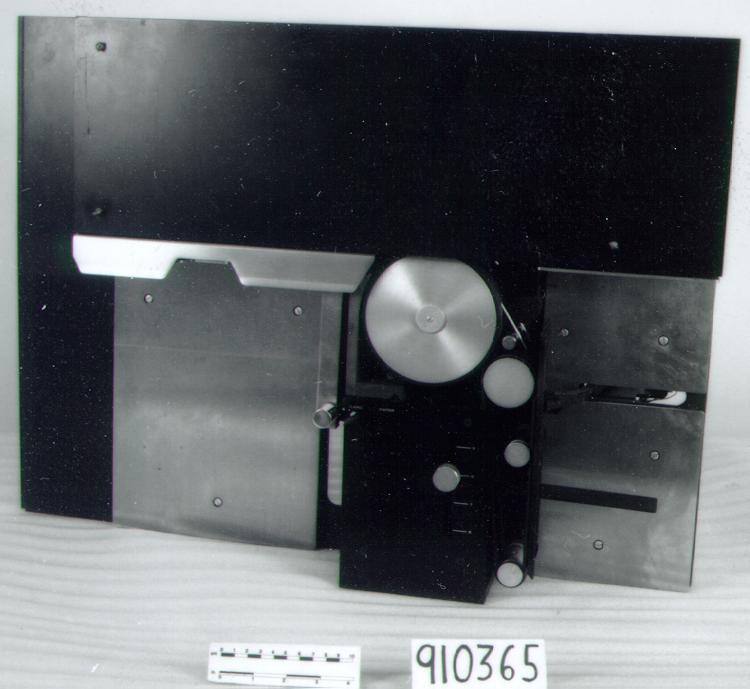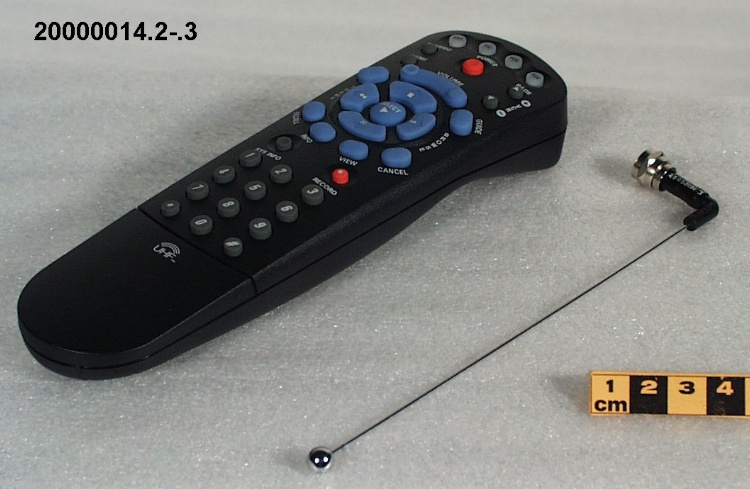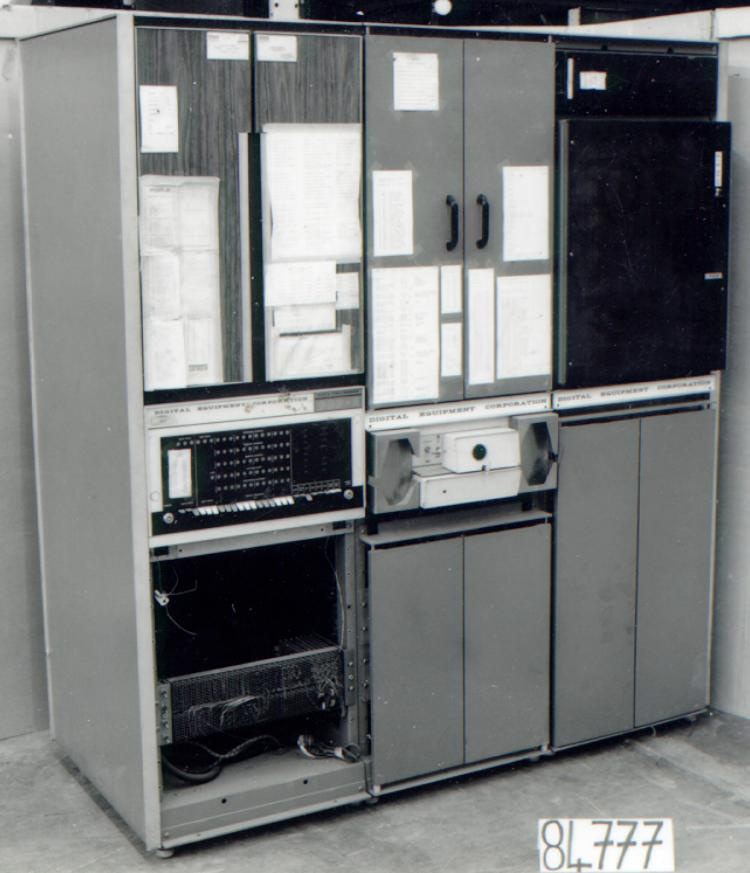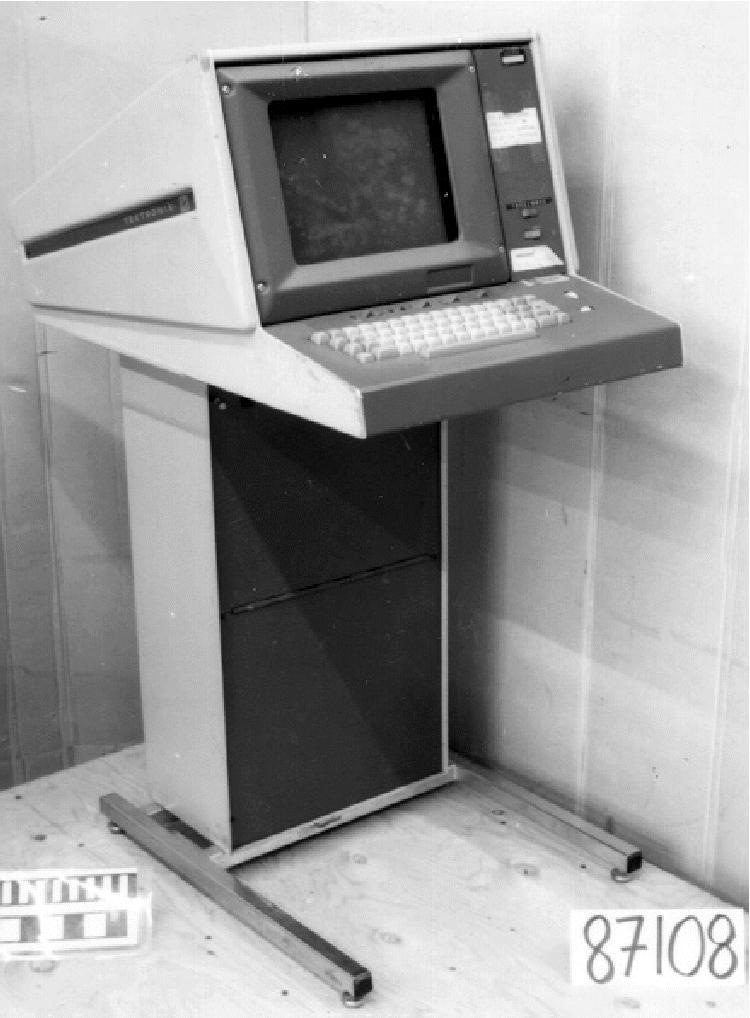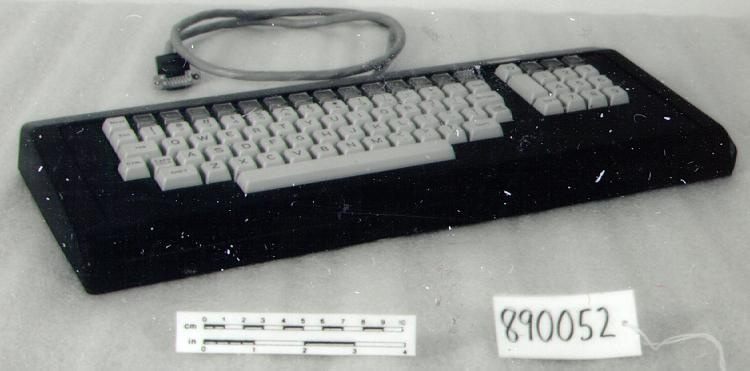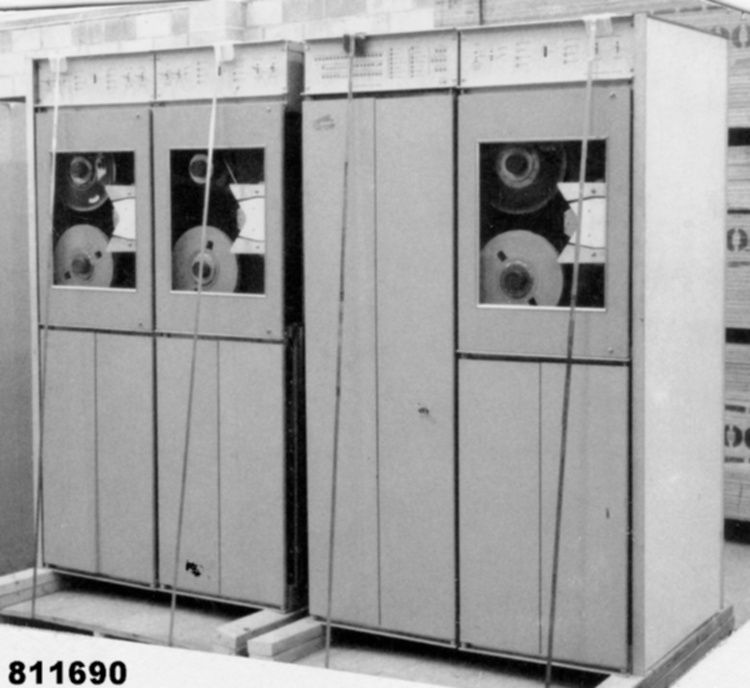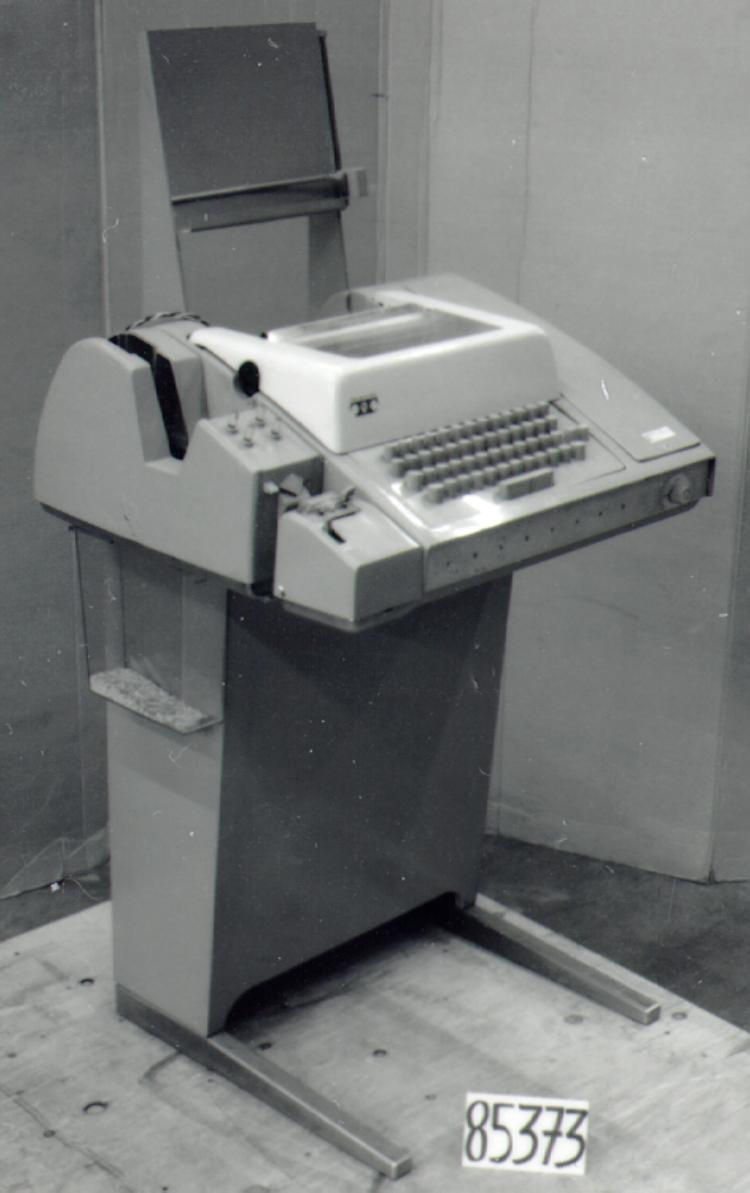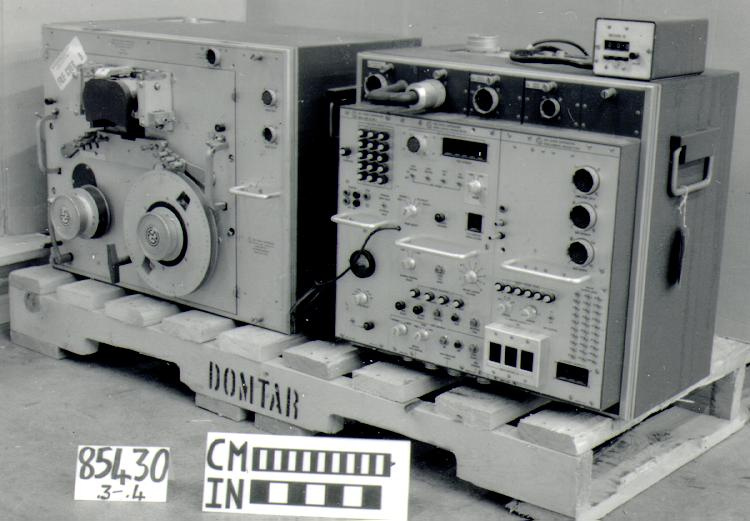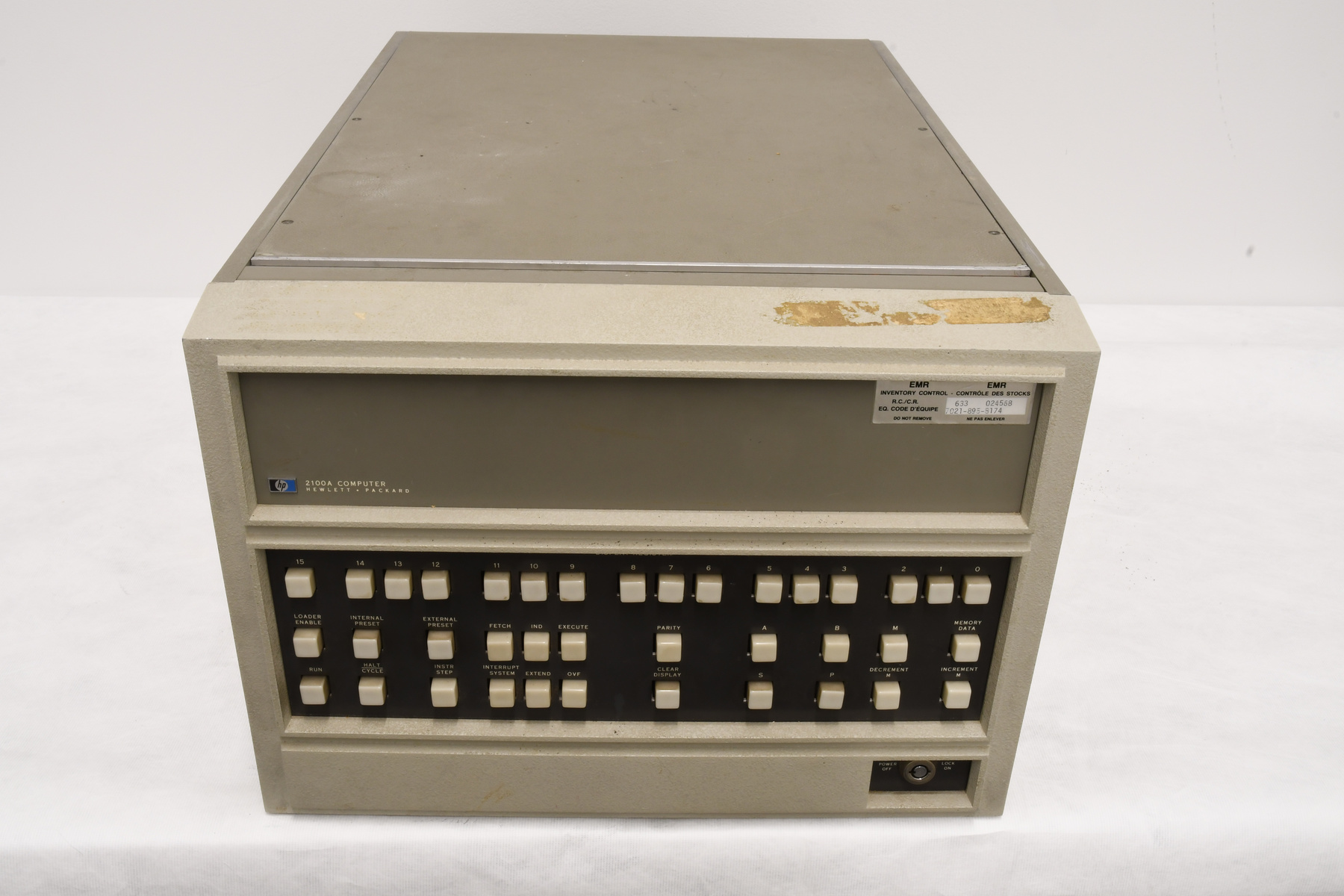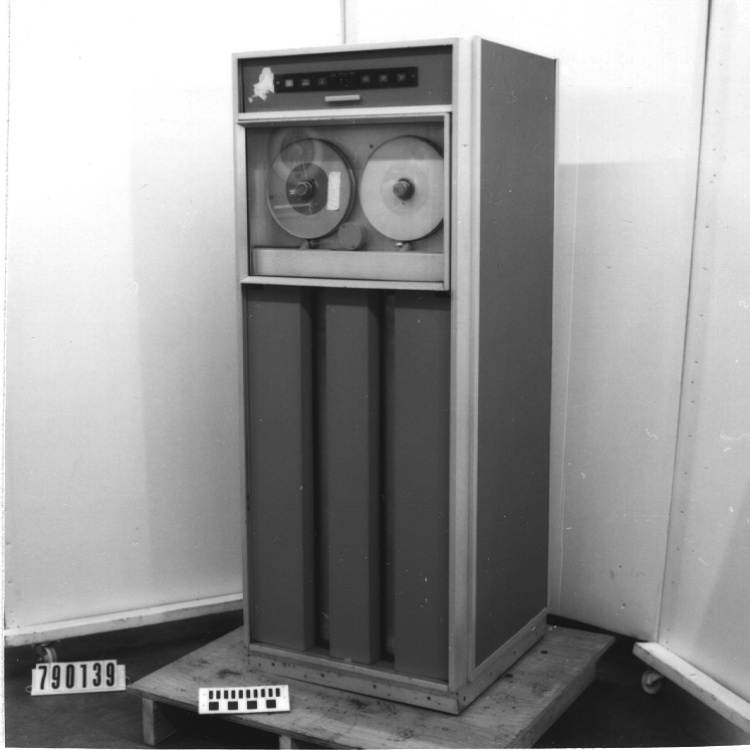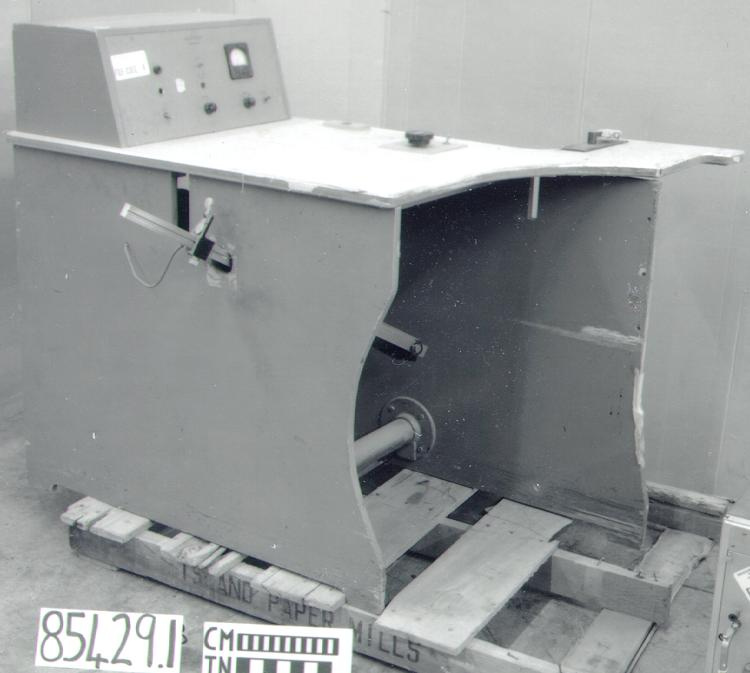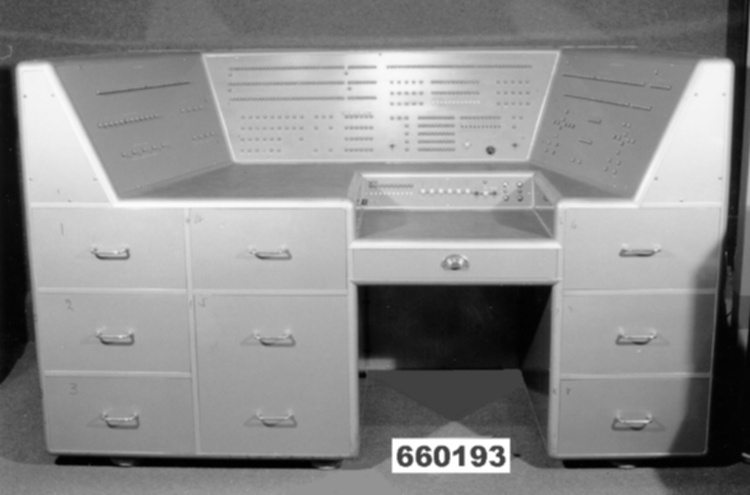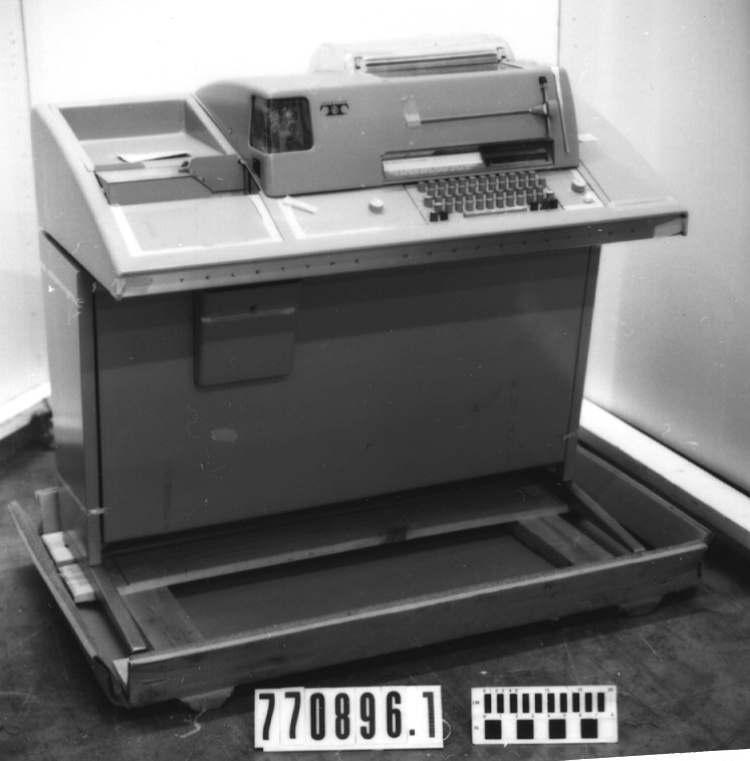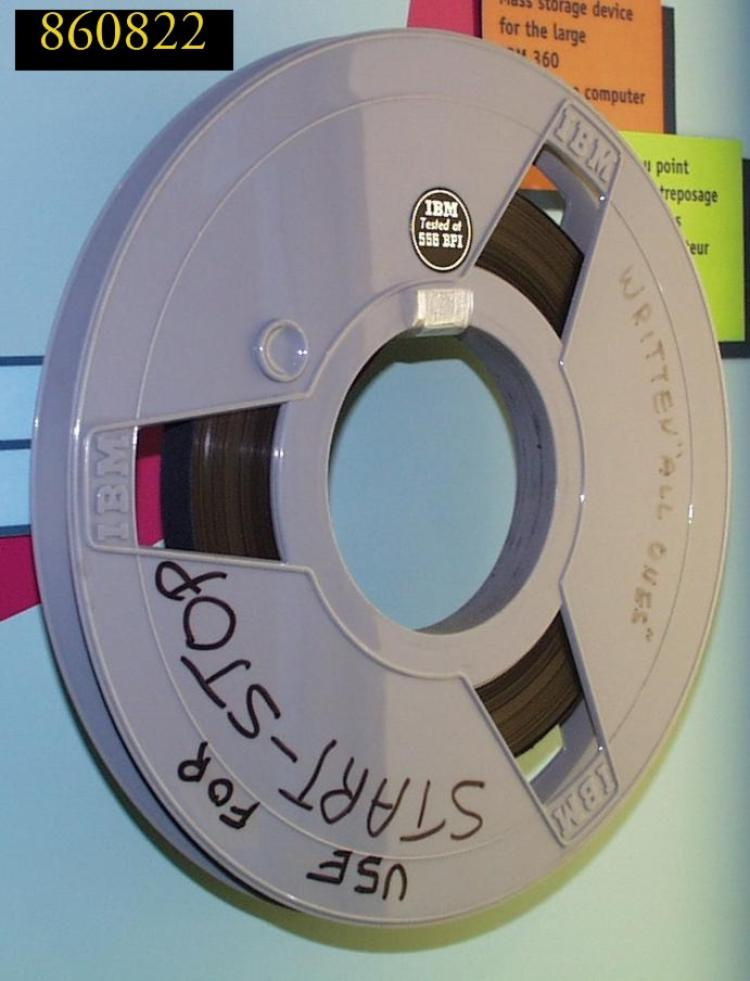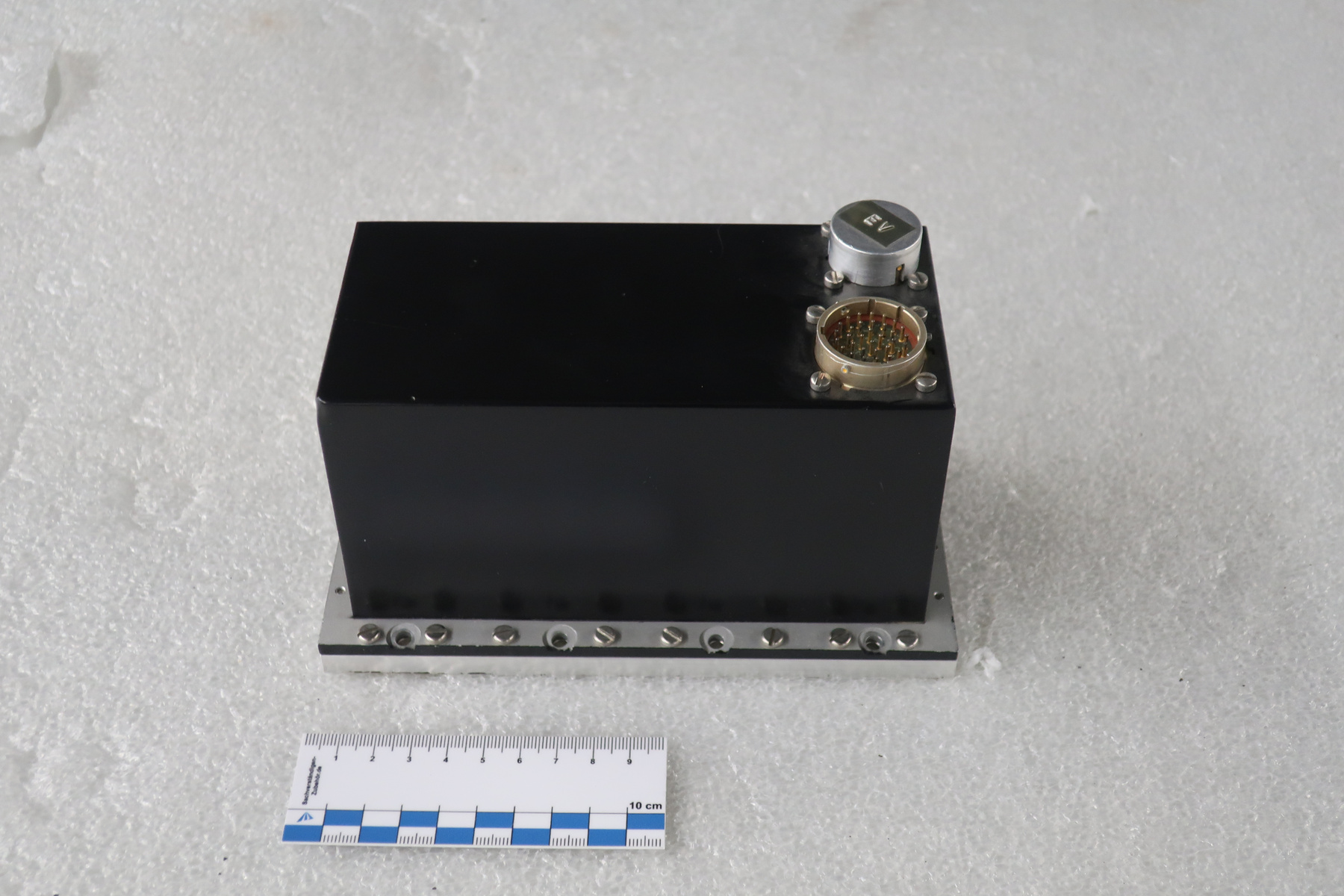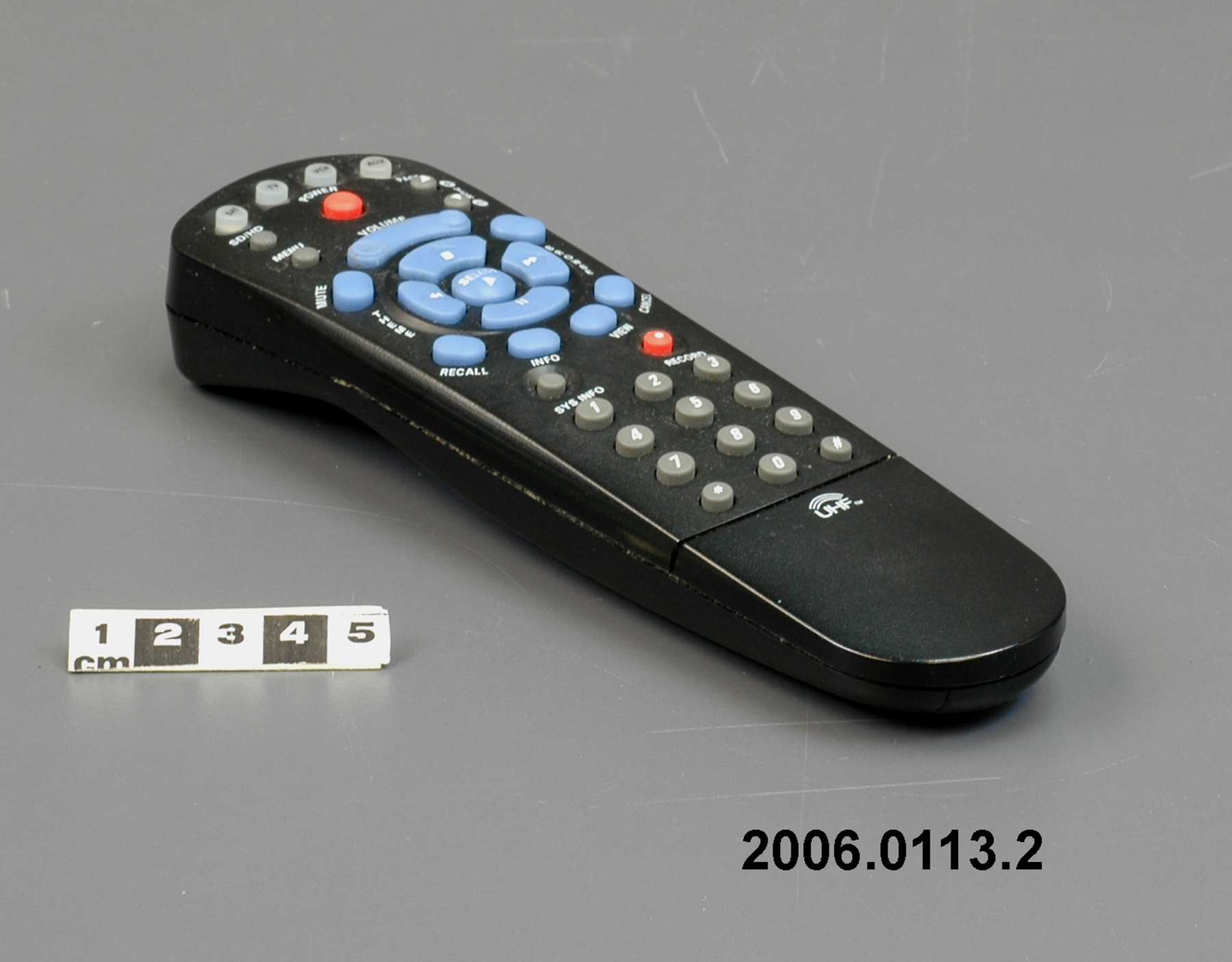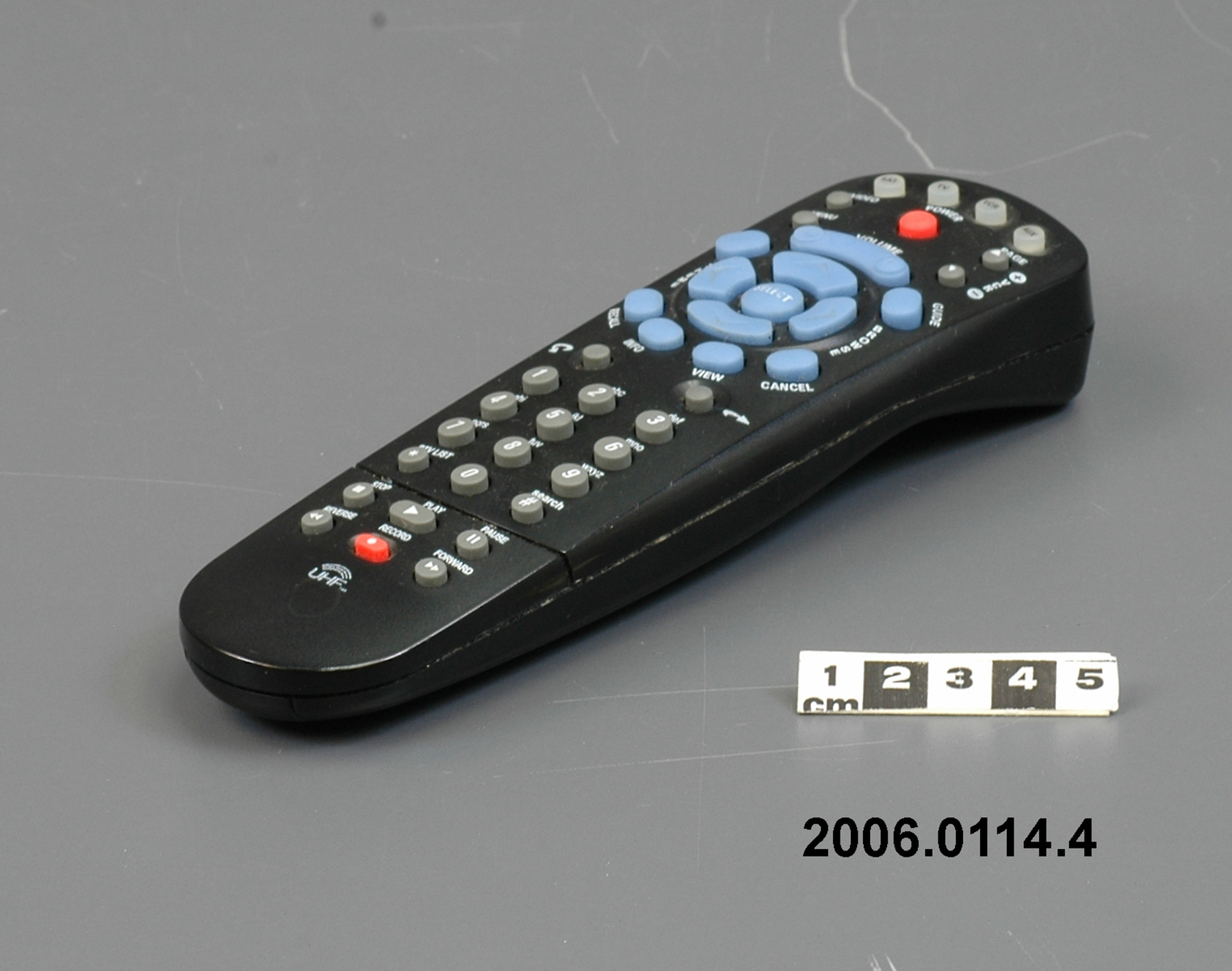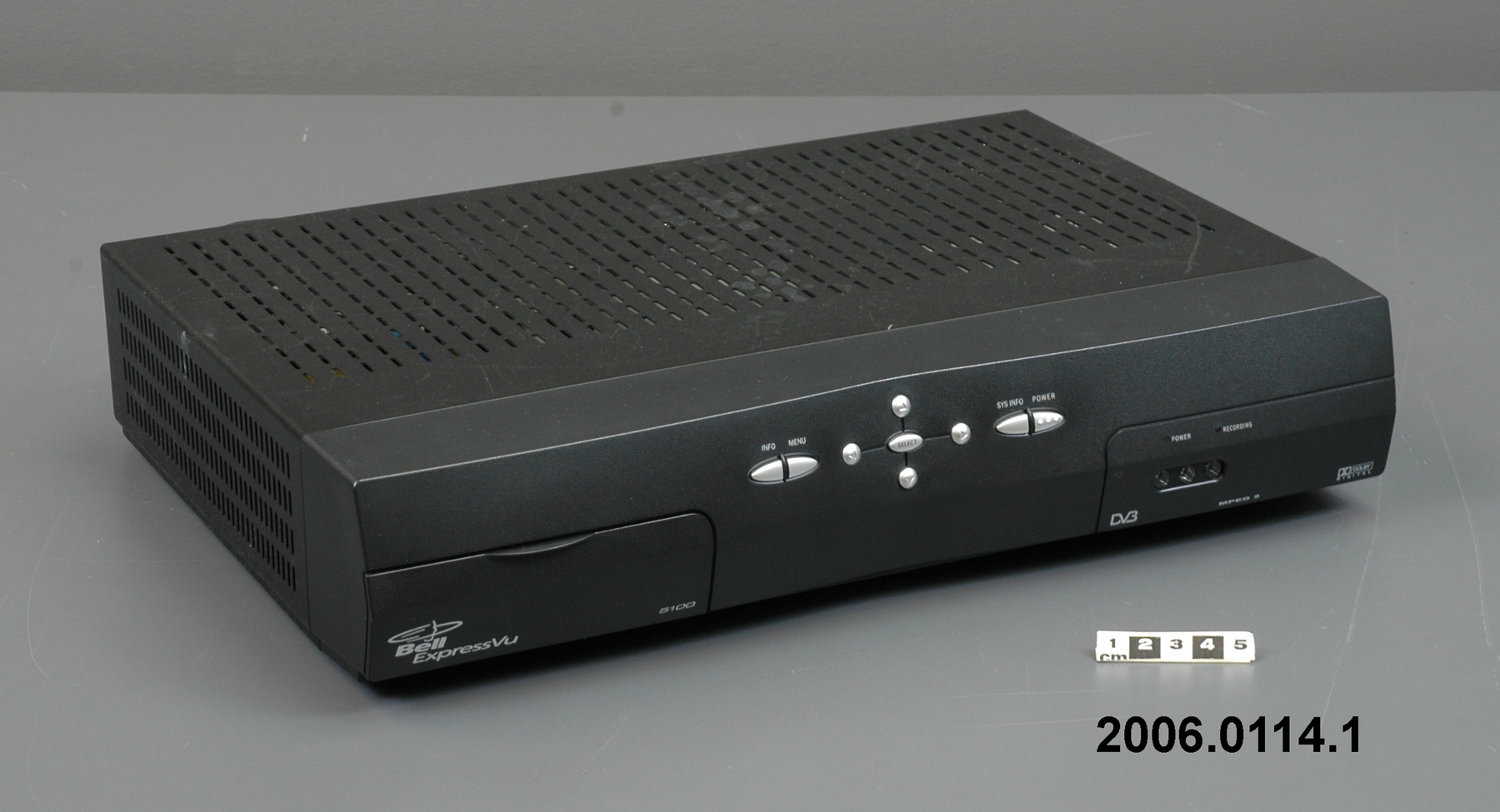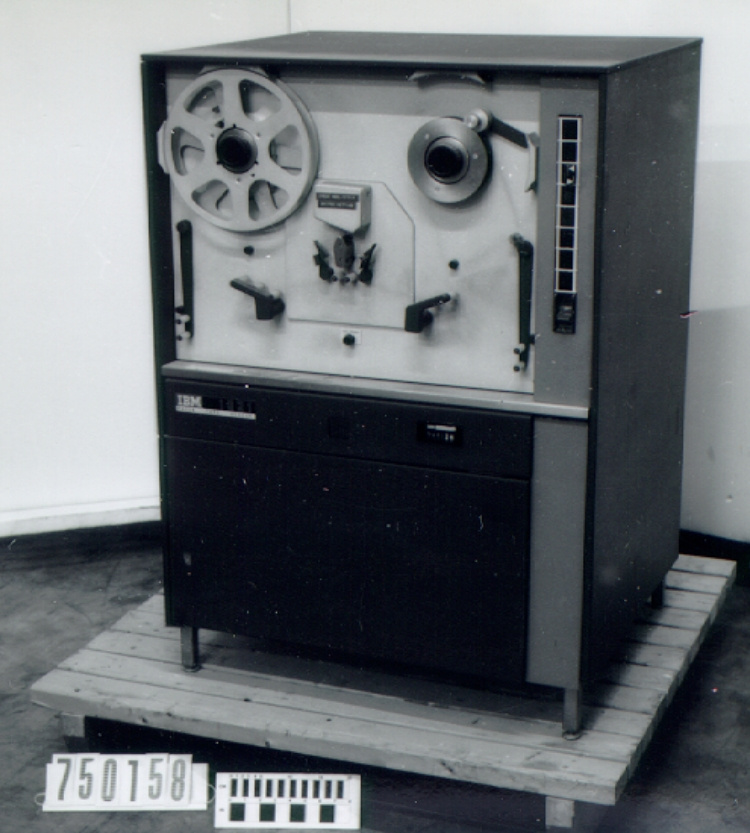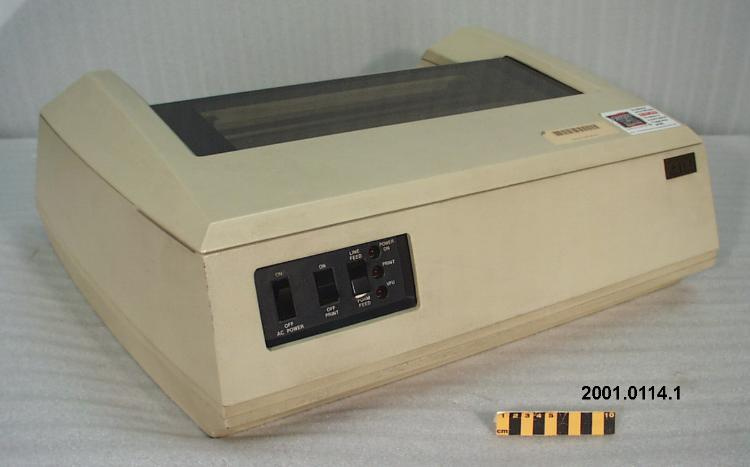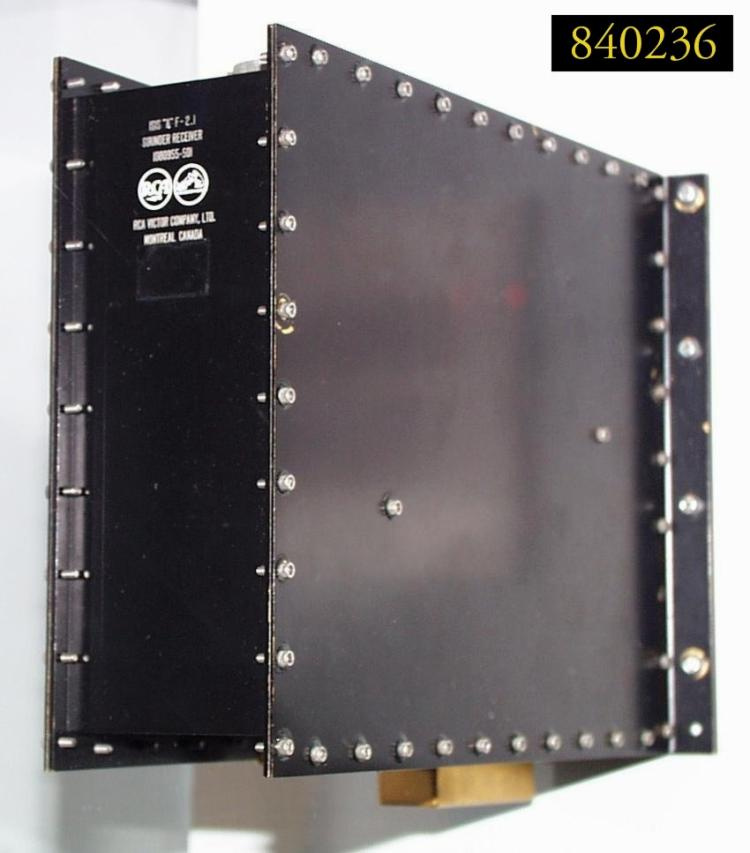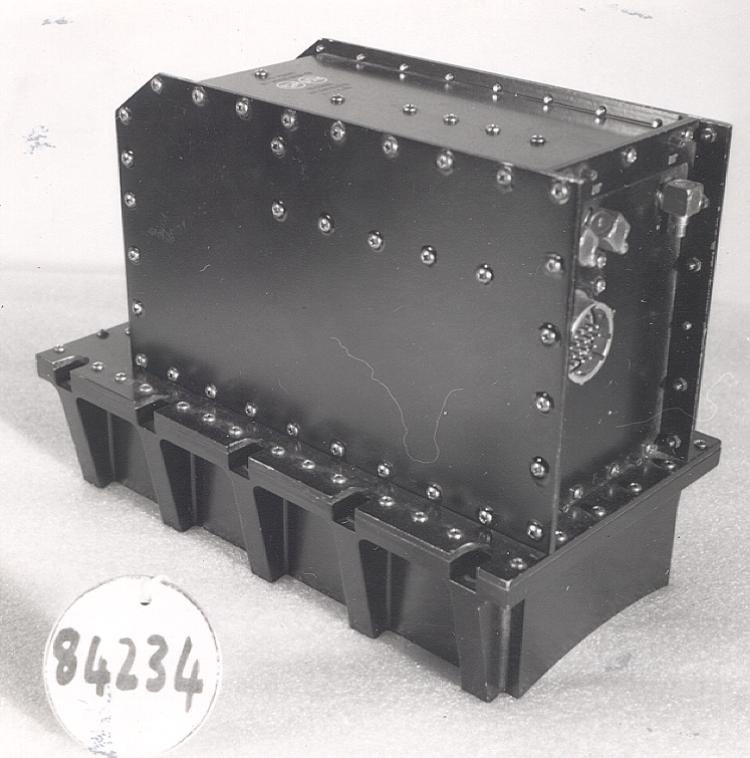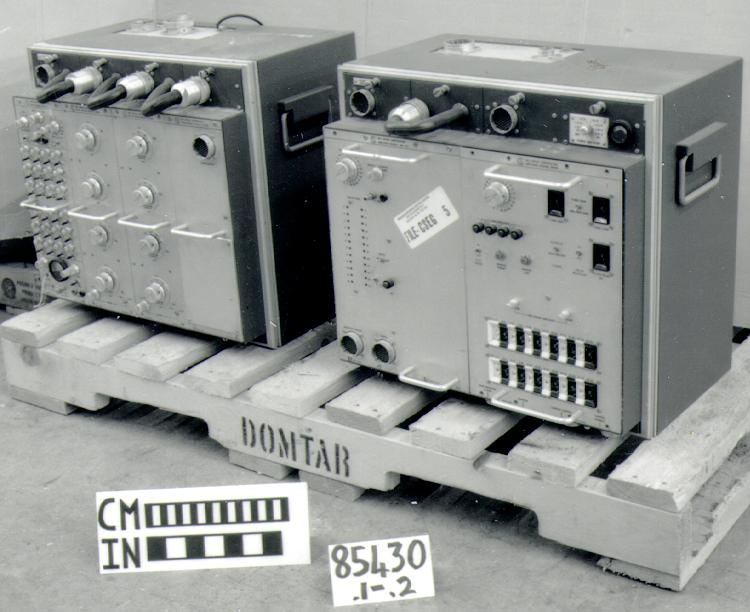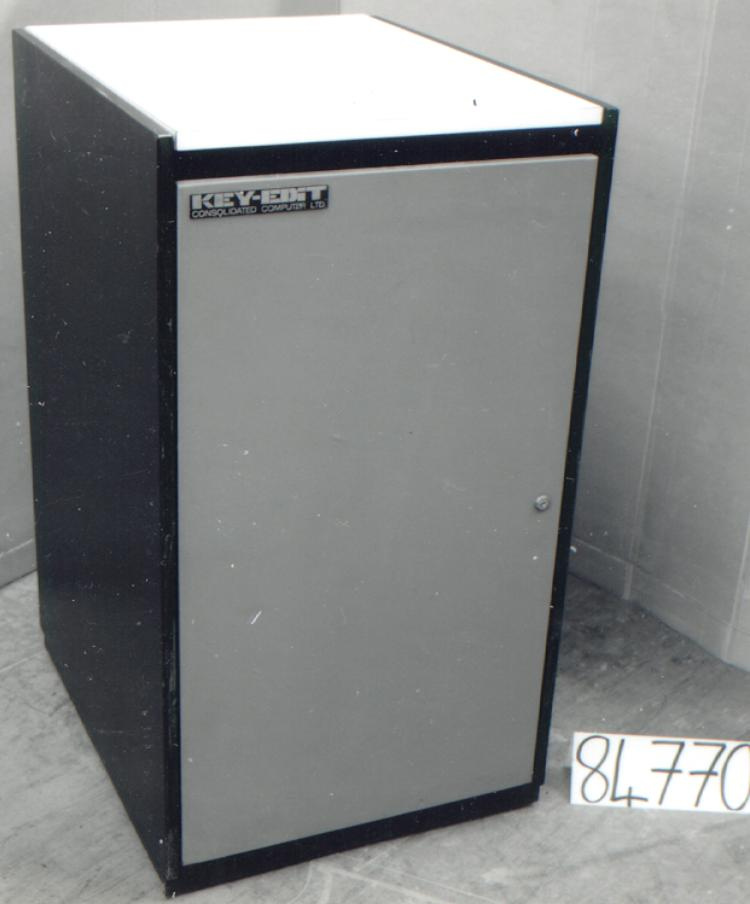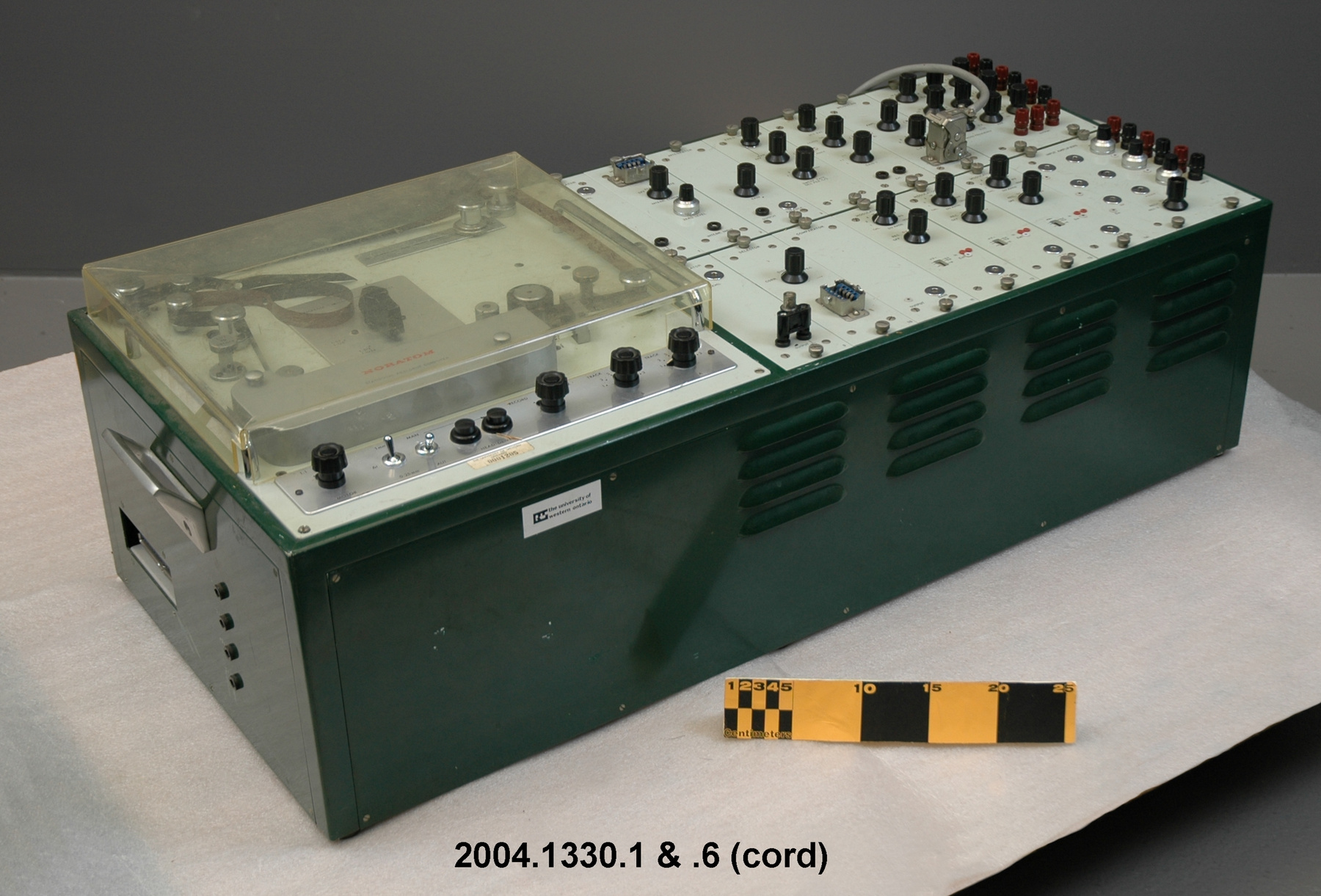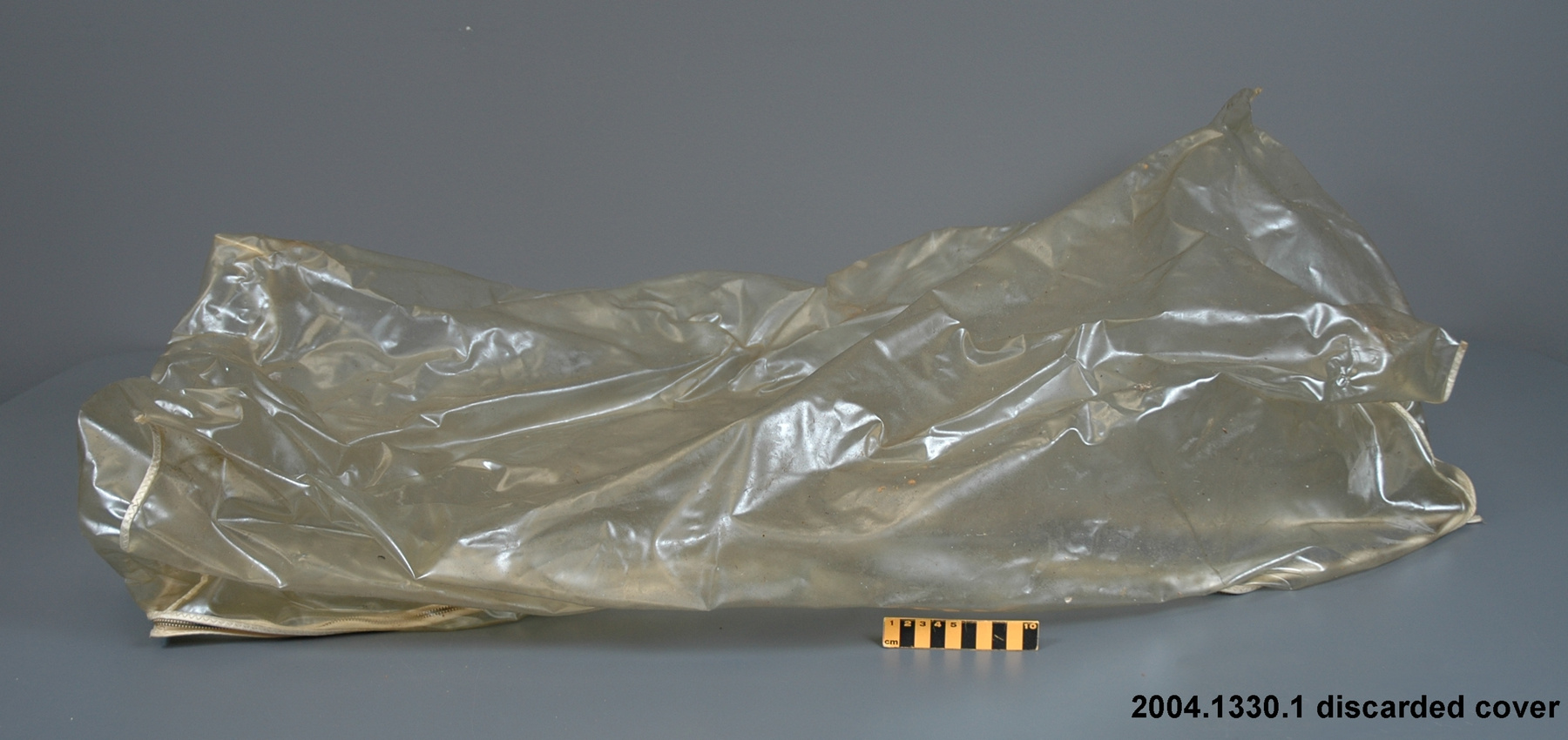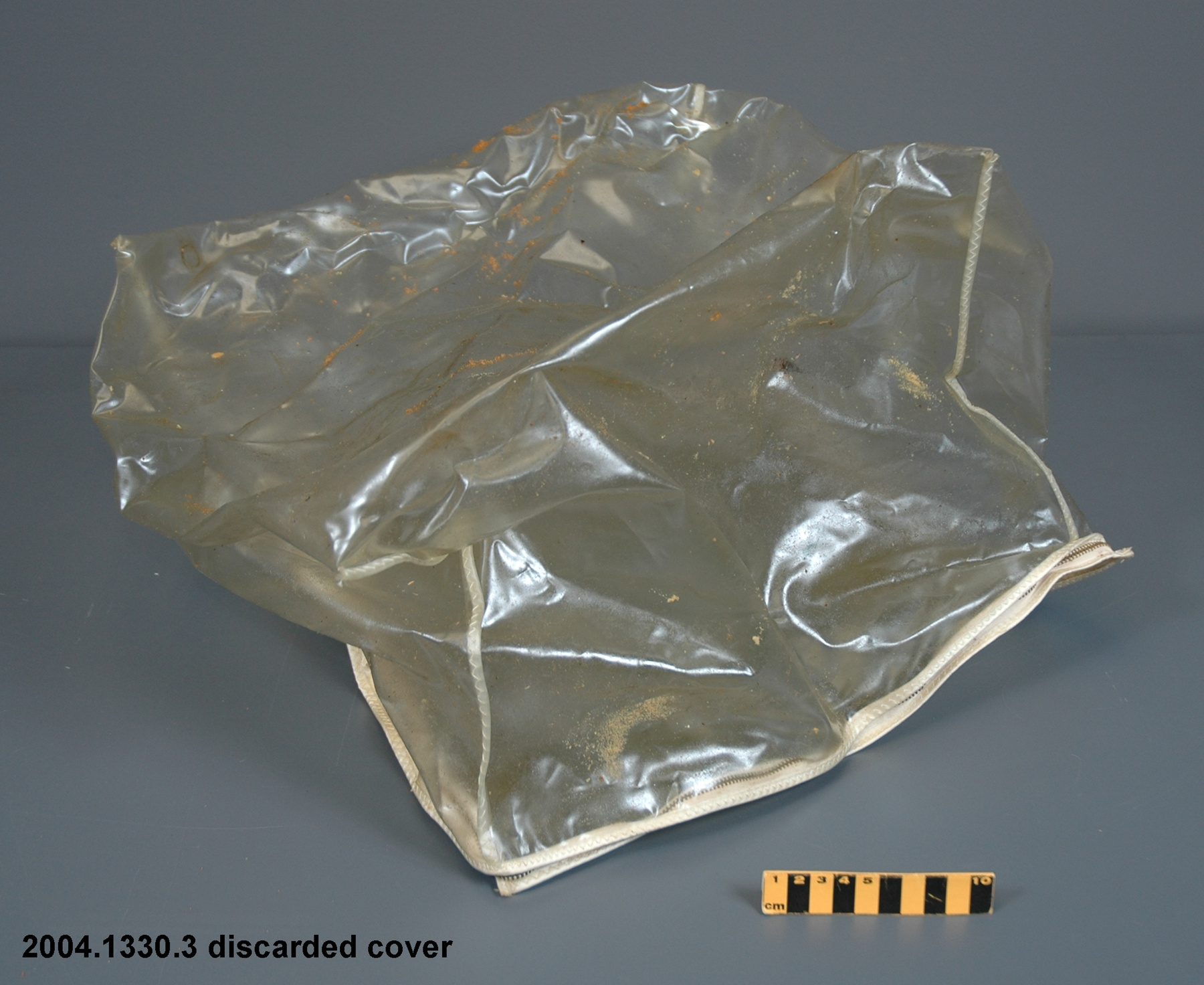Computer
Use this image
Can I reuse this image without permission? Yes
Object images on the Ingenium Collection’s portal have the following Creative Commons license:
Copyright Ingenium / CC BY-NC-ND (Attribution-NonCommercial 4.0 International (CC BY-NC 4.0)
ATTRIBUTE THIS IMAGE
Ingenium,
2004.1330.001
Permalink:
Ingenium is releasing this image under the Creative Commons licensing framework, and encourages downloading and reuse for non-commercial purposes. Please acknowledge Ingenium and cite the artifact number.
DOWNLOAD IMAGEPURCHASE THIS IMAGE
This image is free for non-commercial use.
For commercial use, please consult our Reproduction Fees and contact us to purchase the image.
- OBJECT TYPE
- analogue
- DATE
- 1957–1966
- ARTIFACT NUMBER
- 2004.1330.001
- MANUFACTURER
- Noratom AS
- MODEL
- ISAC/ 5003
- LOCATION
- Oslo, Norway
More Information
General Information
- Serial #
- 30
- Part Number
- 1
- Total Parts
- 23
- AKA
- N/A
- Patents
- N/A
- General Description
- metal casing/ synthetic controls on casing top/ metal tape spools and parts/ synthetic tape assembly cover on casing top/ synthetic parts
Dimensions
Note: These reflect the general size for storage and are not necessarily representative of the object's true dimensions.
- Length
- 97.5 cm
- Width
- 41.0 cm
- Height
- 29.2 cm
- Thickness
- N/A
- Weight
- N/A
- Diameter
- N/A
- Volume
- N/A
Lexicon
- Group
- Computing Technology
- Category
- Analog computing devices
- Sub-Category
- N/A
Manufacturer
- AKA
- Noratom
- Country
- Norway
- State/Province
- Unknown
- City
- Oslo
Context
- Country
- Canada
- State/Province
- Ontario
- Period
- circa 1966 +
- Canada
-
An example of a Norwegian made analogue computer used for scientific purposes at a Canadian university. Information provided by Dr. Don Moorcroft 2004/01/28 (see worksheet in Supp. Info.): The Noratom ISAC (Instrument for Statistical Analog Computations) was purchased in 1966 for $5,468.00. It was probably bought by Dr. Peter Forsyth, who was then head of the Physics Department of the University of Western Ontario and also head of the group of people using radio and radar techniques in the study of the Earth's ionosphere. Dr. Moorcroft's general area of interest has been in the study of small-scale structure in the ionosphere. This has usually been connected with the ionospheric E-region and the auroral zone, but at times has spread to other phenomena and/or at other heights. In the late 1960's there was considerable interest in the nature of the irregularities responsible for the scintillation of signals received on the ground from transmitters aboard artificial satellites, a direct outgrowth of the study of radio stare scintillations, which happened to be the topic of Dr. Moorcroft's Ph.D. thesis. One of the main reasons for getting this analogue computer was to analyse observations of these scintillations. The idea was that you put out three antennas in a triangle, with separations of a few hundred metres. The irregularities refract the radio waves from the satellite, and produce a varying pattern of phase and amplitude fluctuations which drifts across the receivers as the satellite moves overhead. The phase and/or amplitude fluctuations were recorded at each of the three stations and by measuring the cross-correlation between the signals from the different stations it was possible to determine the shape of the pattern on the ground, and hence, by suitable modelling, some of the characteristics of the irregularities in the ionosphere, both their height and shape. - Function
-
An analogue computer is a programmable machine that processes data represented by directly measurable quantities (such as voltages) which vary continuously. This computer was designed primarily for practical applications of statistical methods to problems in automatic control, especially for determining system transfer function of industrial processes. - Technical
-
An example of an analogue computer of the1950's. Information provided by Dr. Don Moorcroft 2004/01/28 (see worksheet in Supp. Info.): The reason that UWO purchased this analogue system, rather than using a digital computer relates to the state of computing at the time. In 1966, the computers being used (outside of the military and defence establishments, perhaps) were central mainframe computers. In order to use a computer to analyse these data at that time it was necessary to make plots of the signals from each of the receivers, have someone scale them meticulously by hand, and then enter that information onto punched cards which could then be submitted as input to a computer program. It wasn't until 1970, with the production of the first PDP-11 computer by the Digital Equipment Corporation (DEC), that computers within the reach of individual research groups were widely available, and even then they were relatively expensive, certainly compared to the ISAC. The ISAC was ideally suited to the analysis of the spaced receiver data, since it had three channels, one for each of the receiver amplitudes. A UWO masters student, Kathy Arima, completed her degree on a project which used the ISAC. Her thesis, "Correlation Analysis of Satellite Amplitude Scintillations", was submitted in October, 1969 (see also Ref. 3). - Area Notes
-
Unknown
Details
- Markings
- plate on back reads 'NORATOM AS/ TYPE 5003 SER. NO. 30/ 115V 60 HZ A'/ red and black lettering on top reads 'NORATOM/ STATISTICAL ANALOGUE COMPUTER/ TYPE SINTEF/ NOR 5003' / black lettering for control functions/ labels reading 'THE UNIVERSITY OF WESTERN/ ONTARIO/ 0001205' and 'the university of/ western ontario'
- Missing
- XY recorder component
- Finish
- casing painted glossy dark green with glossy light green top/ black and red synthetic controls on casing top/ plated tape spools and colourless transparent tape assembly cover on casing top/ metallic and plated parts/ multicoloured synthetic parts
- Decoration
- N/A
CITE THIS OBJECT
If you choose to share our information about this collection object, please cite:
Noratom AS, Computer, between 1957–1966, Artifact no. 2004.1330, Ingenium – Canada’s Museums of Science and Innovation, http://collections.ingeniumcanada.org/en/id/2004.1330.001/
FEEDBACK
Submit a question or comment about this artifact.
More Like This
